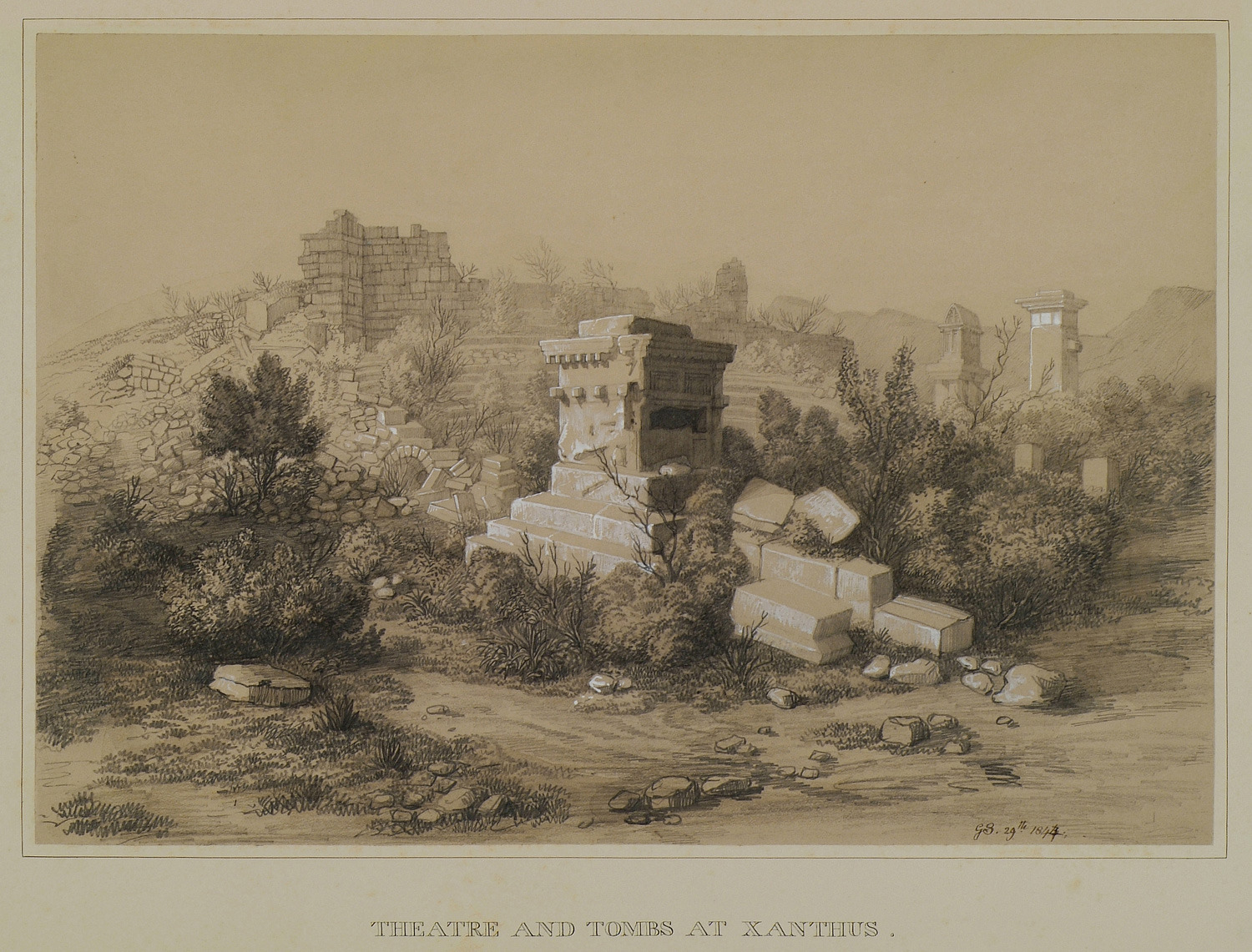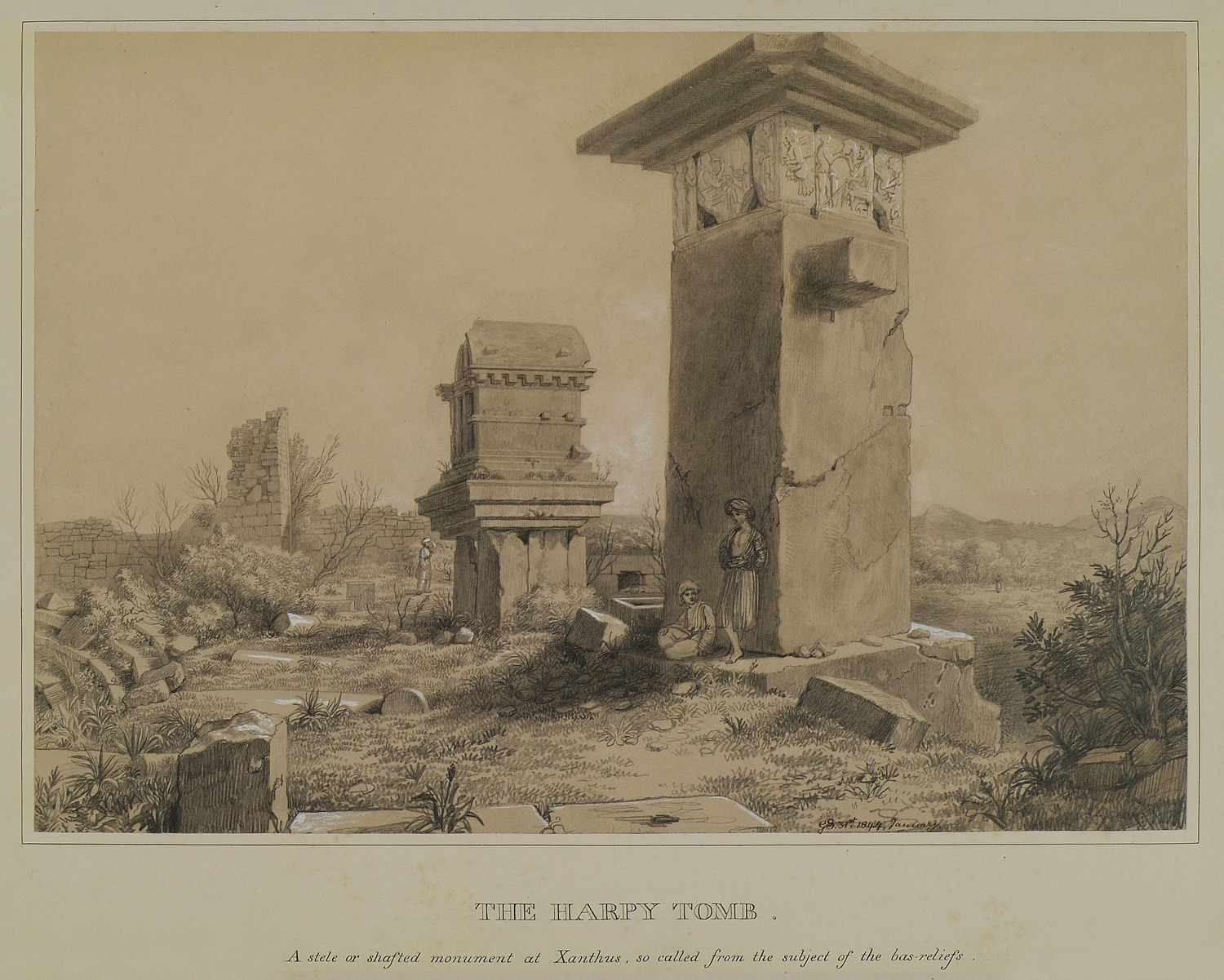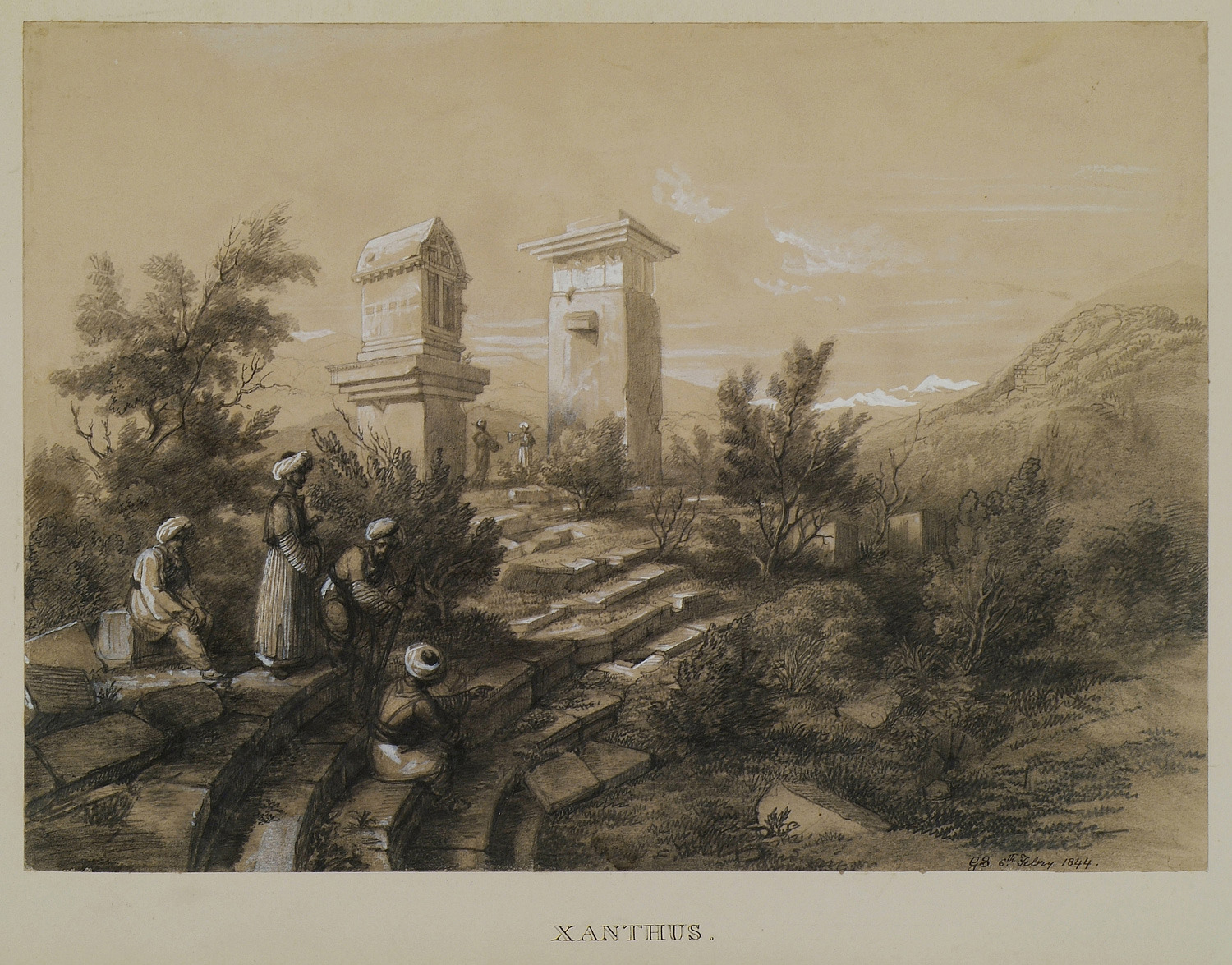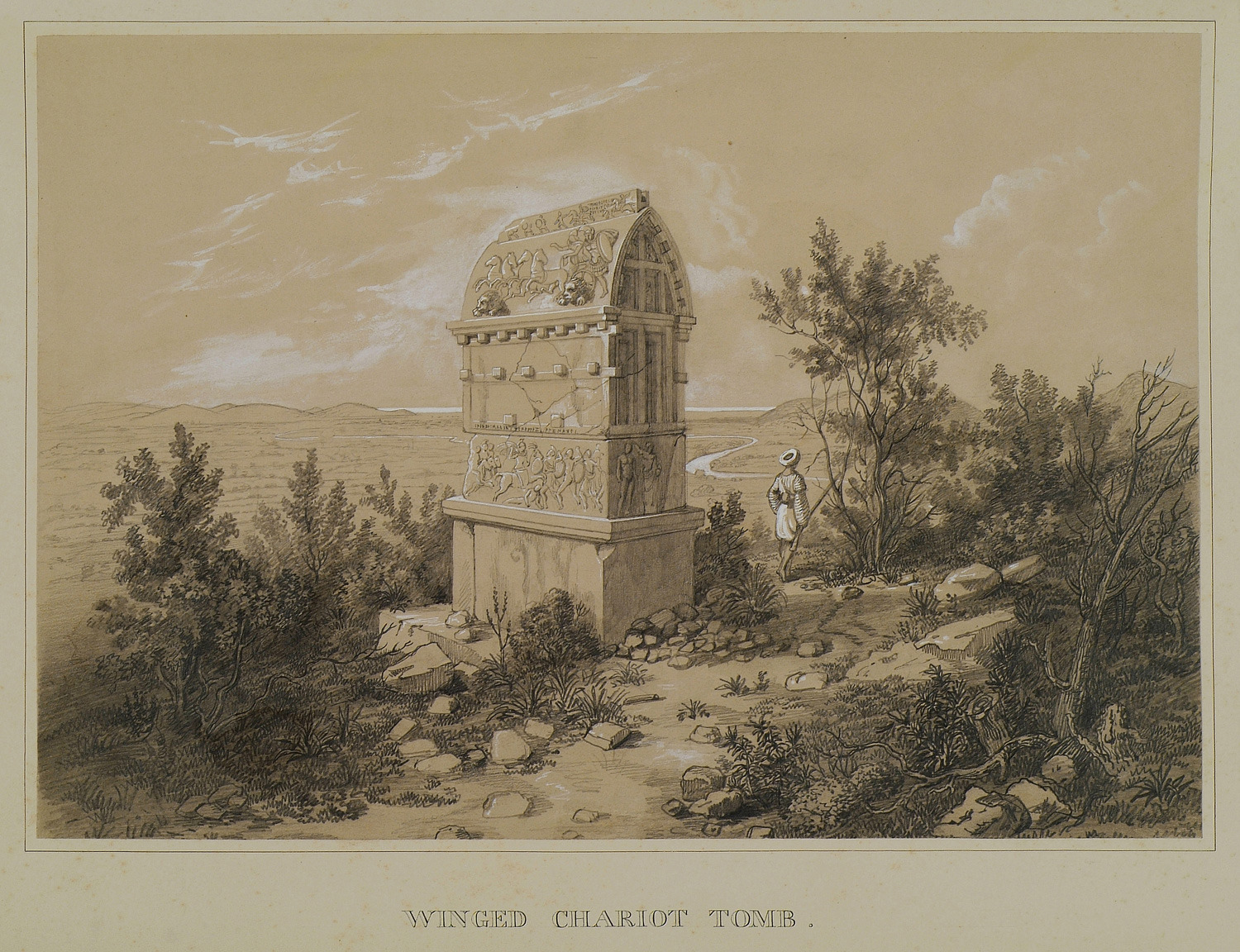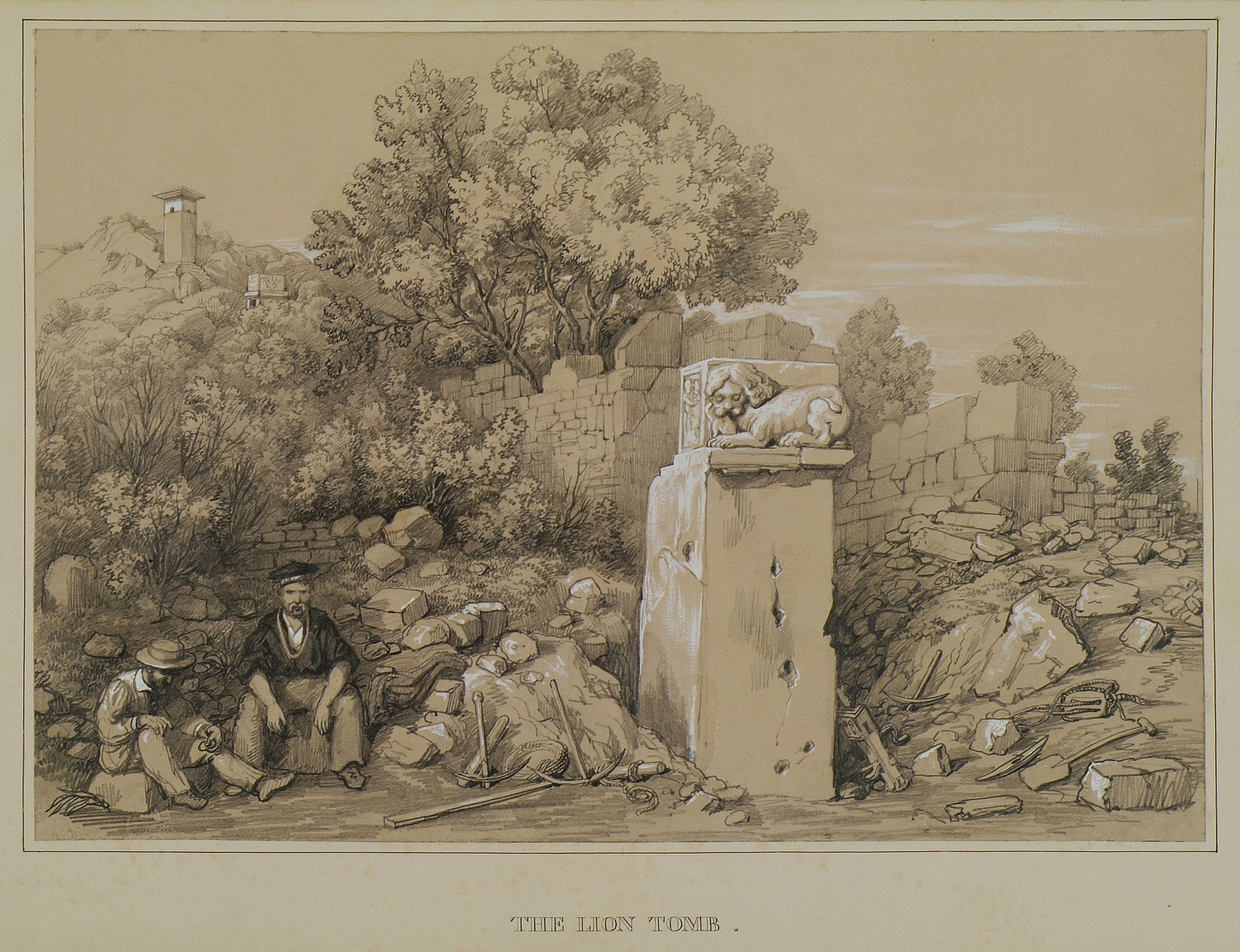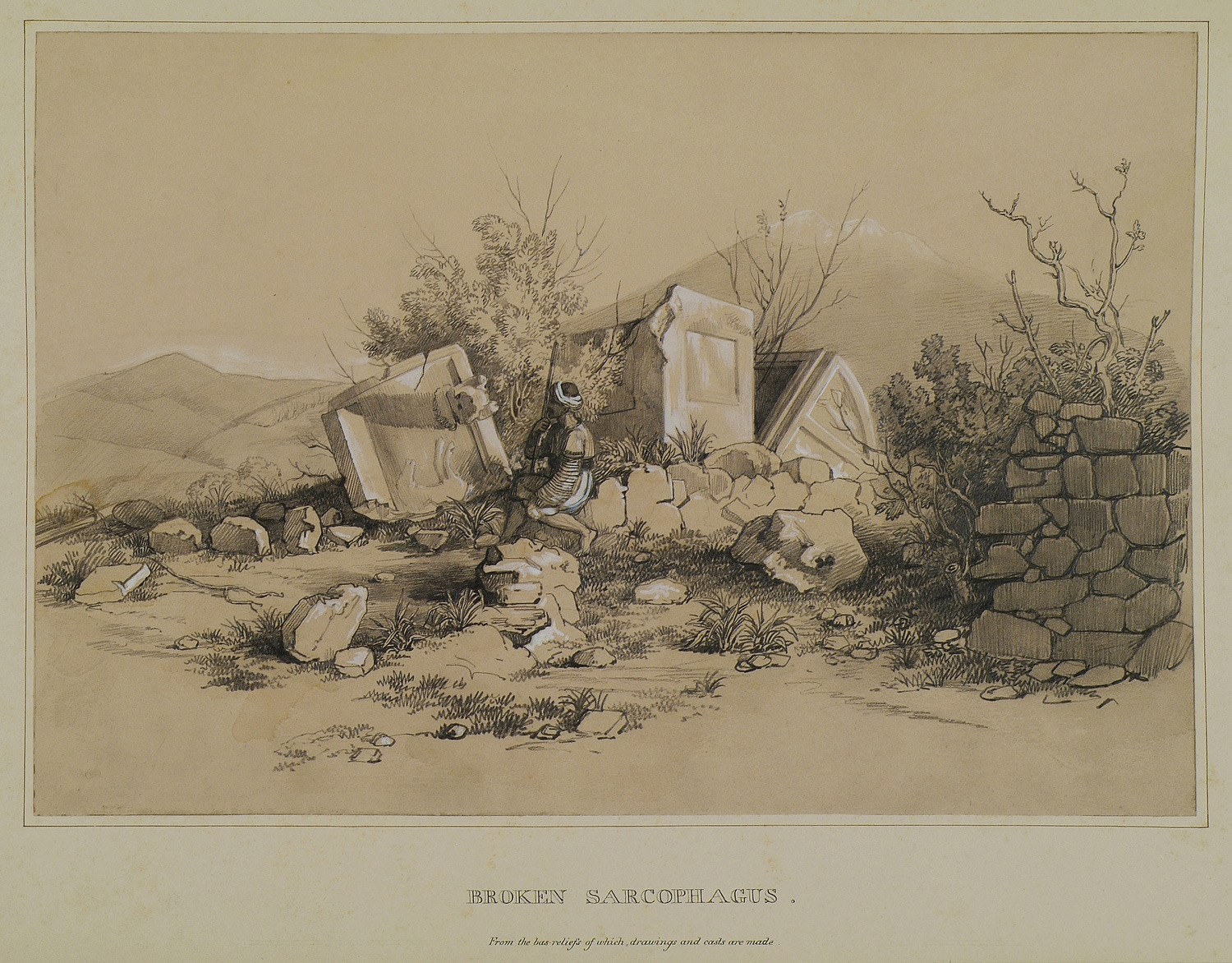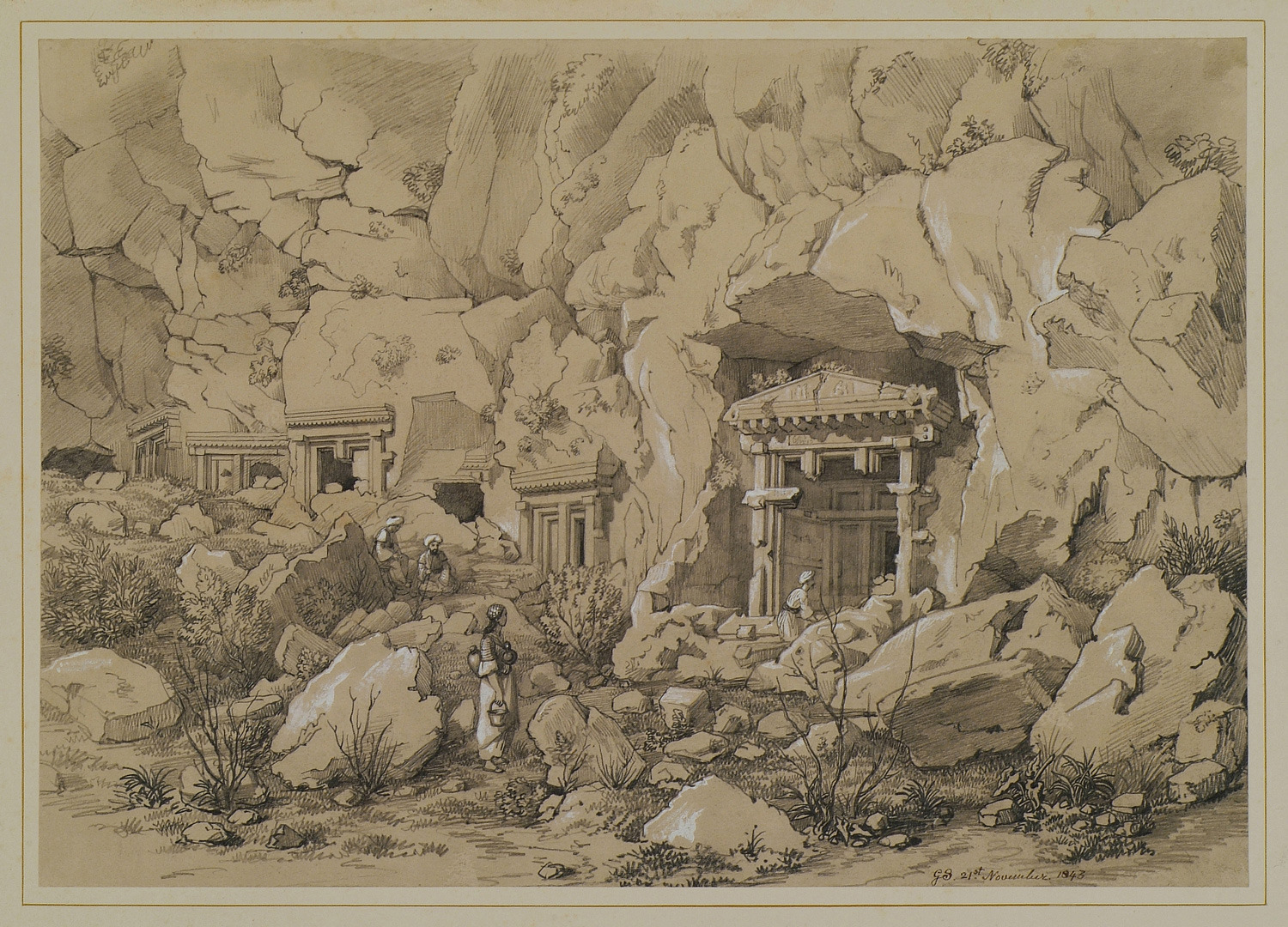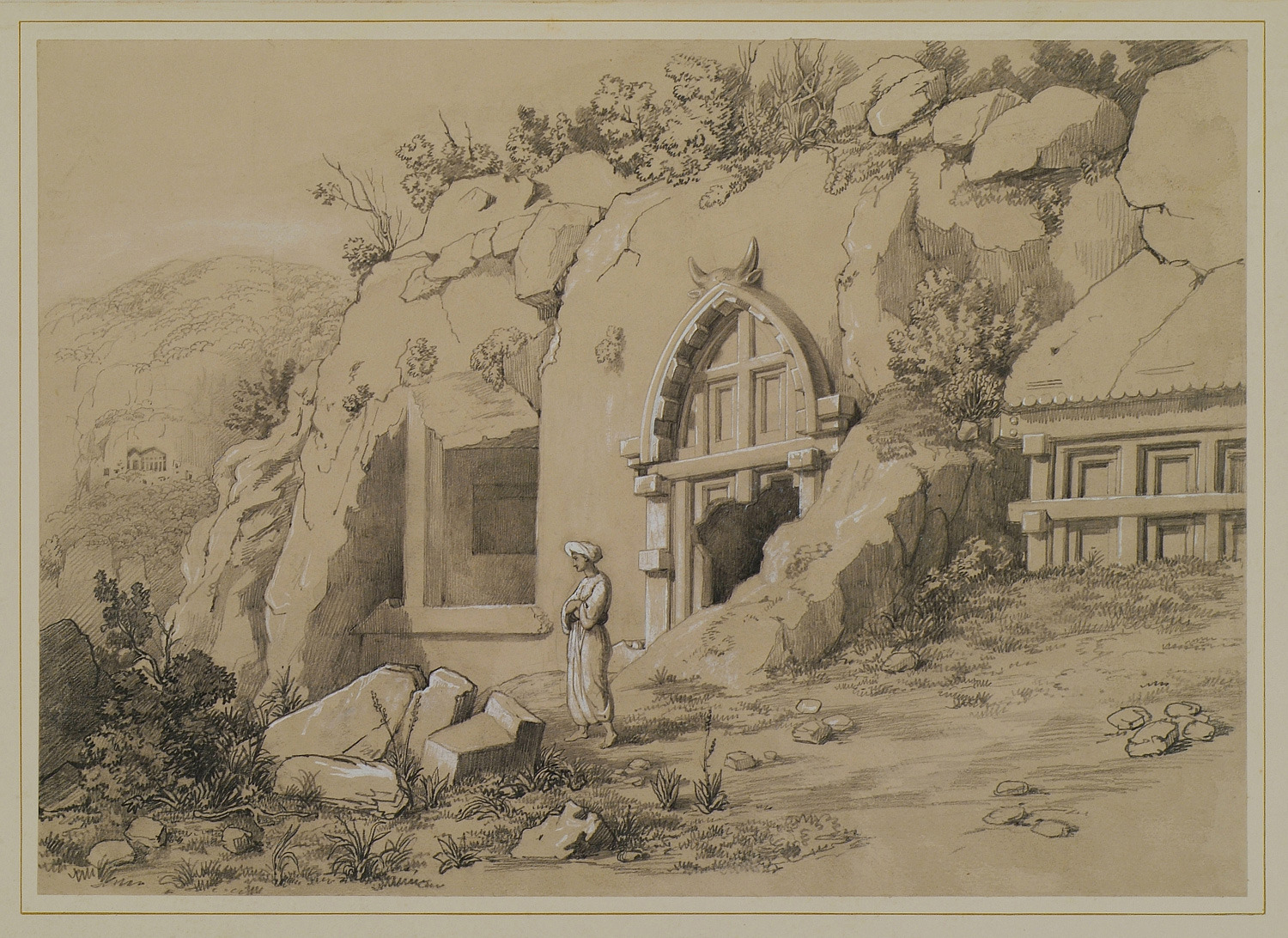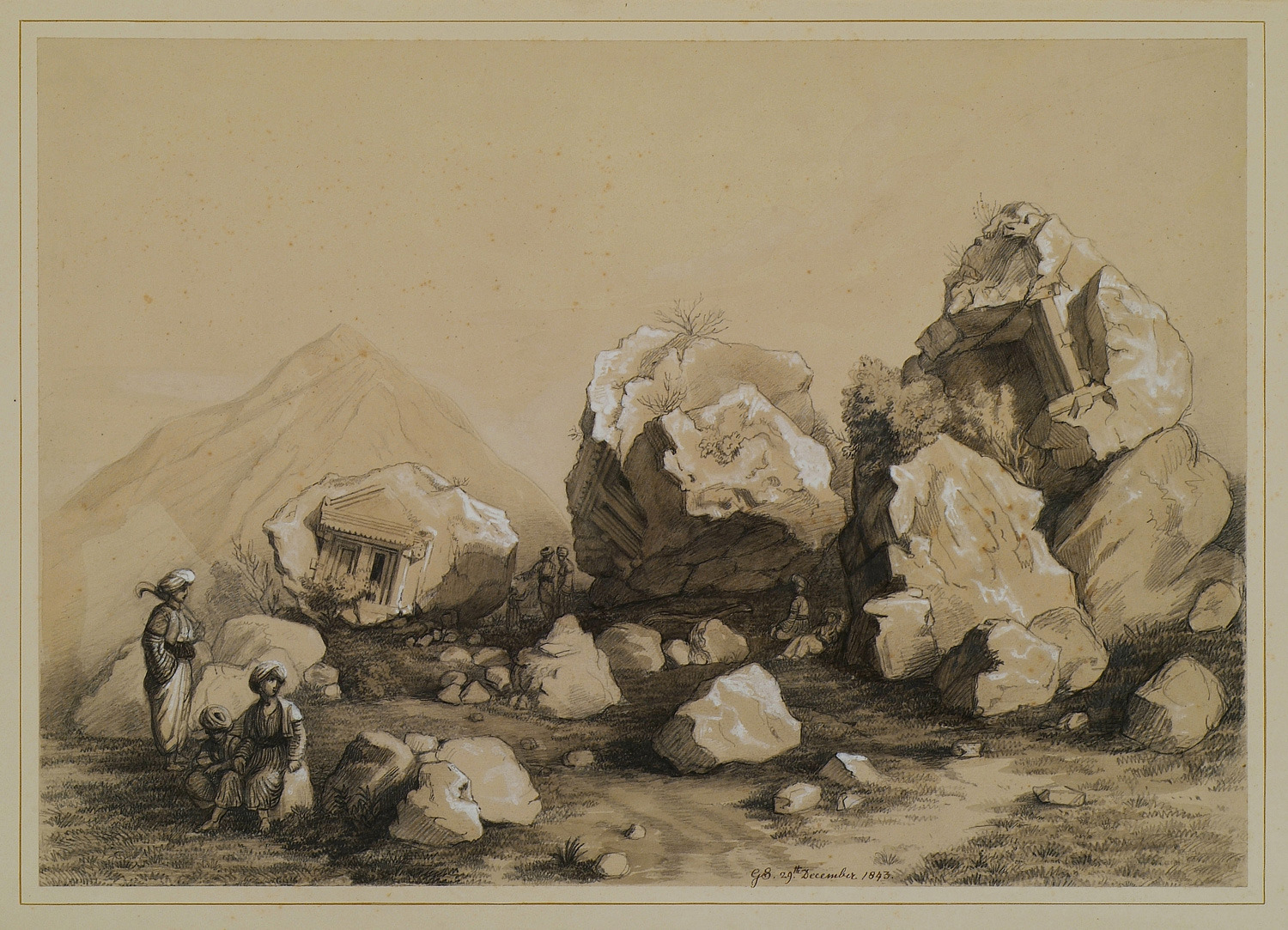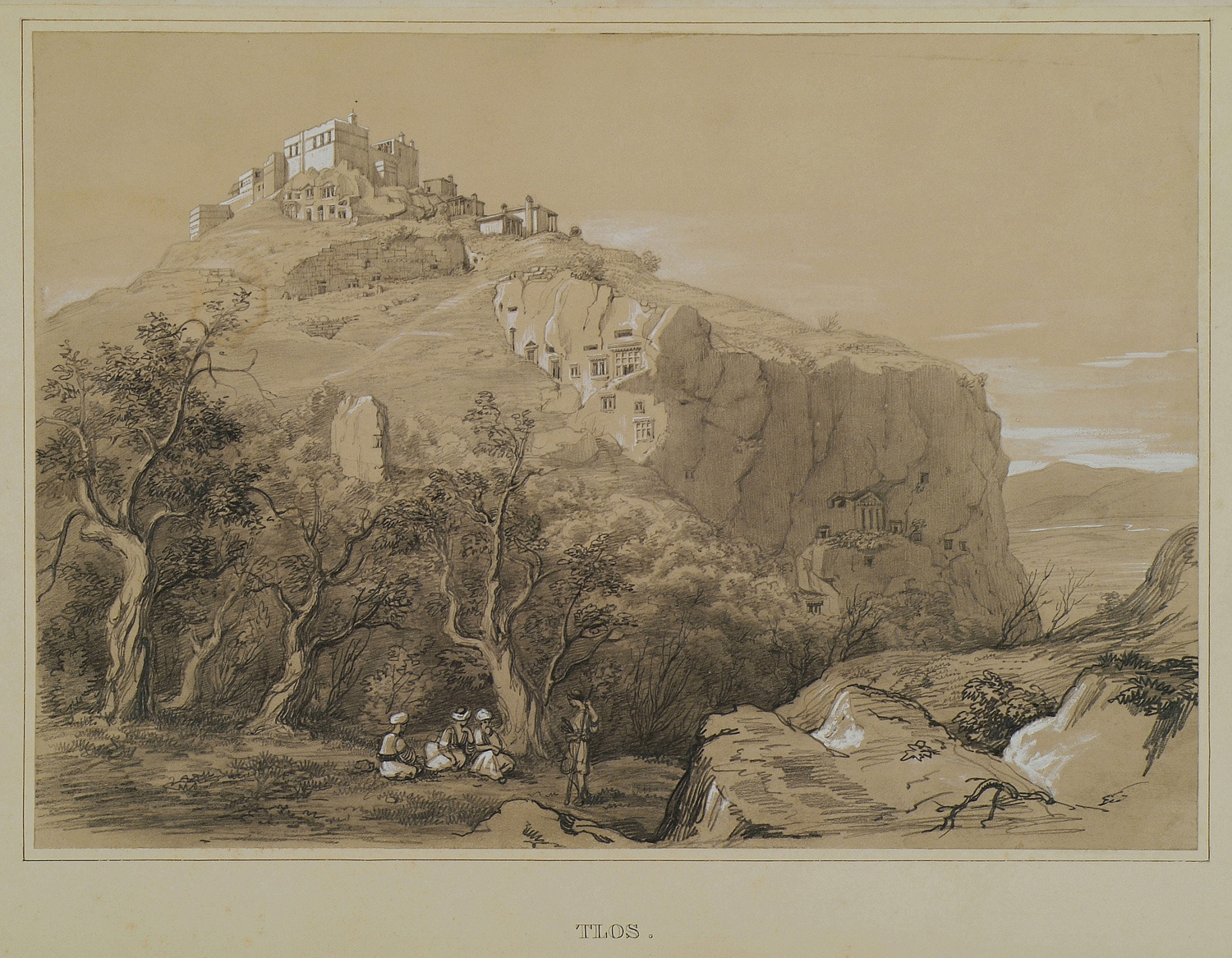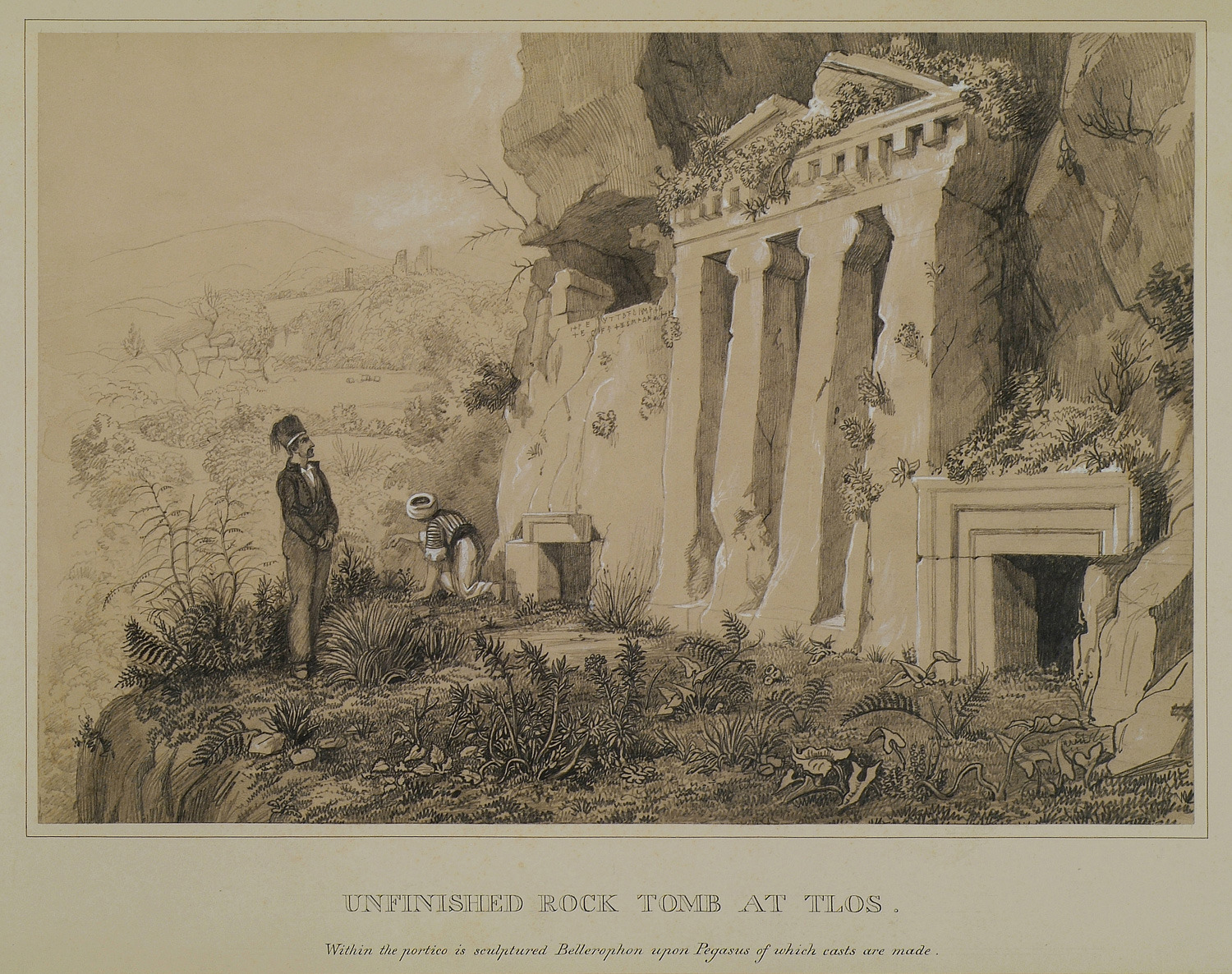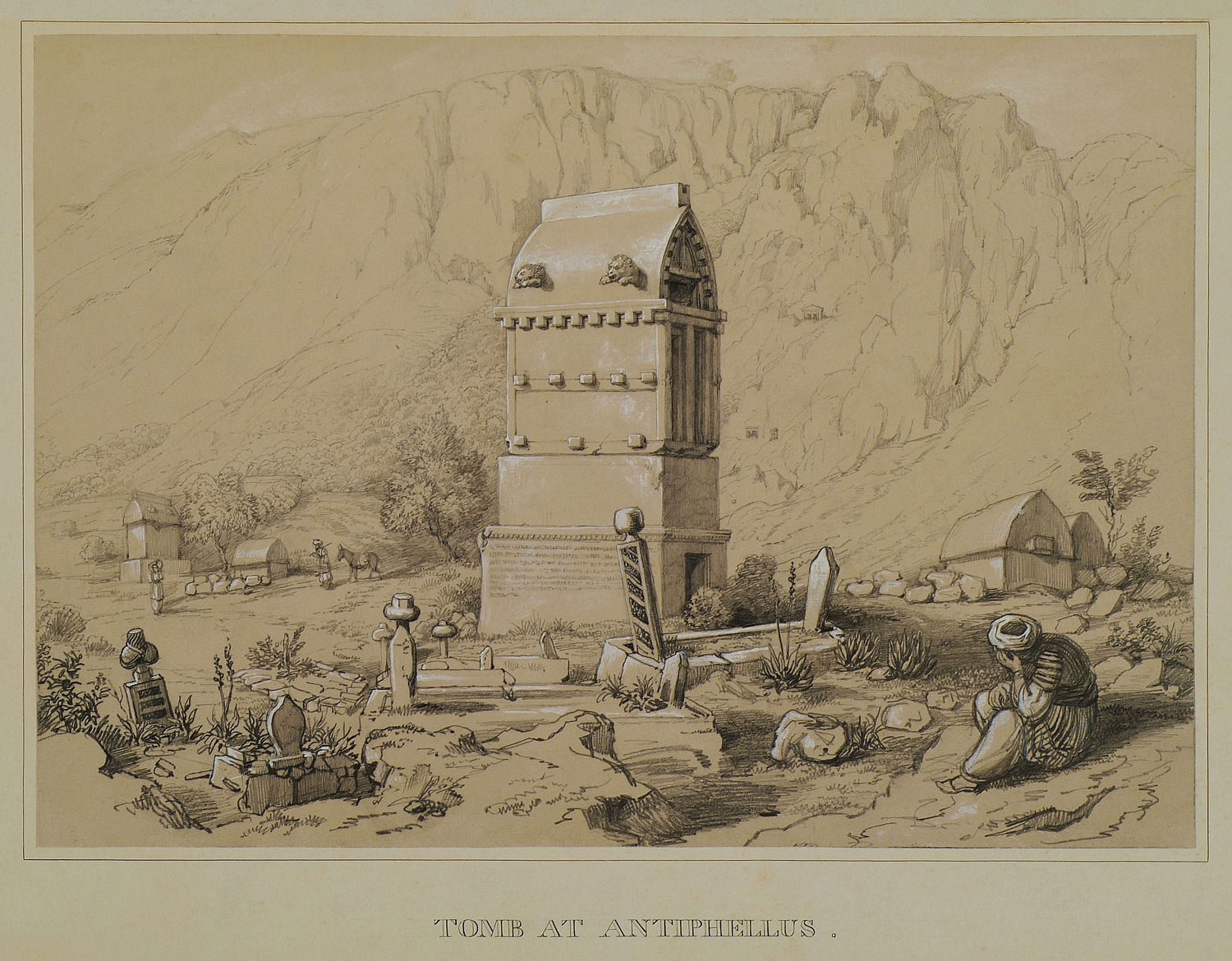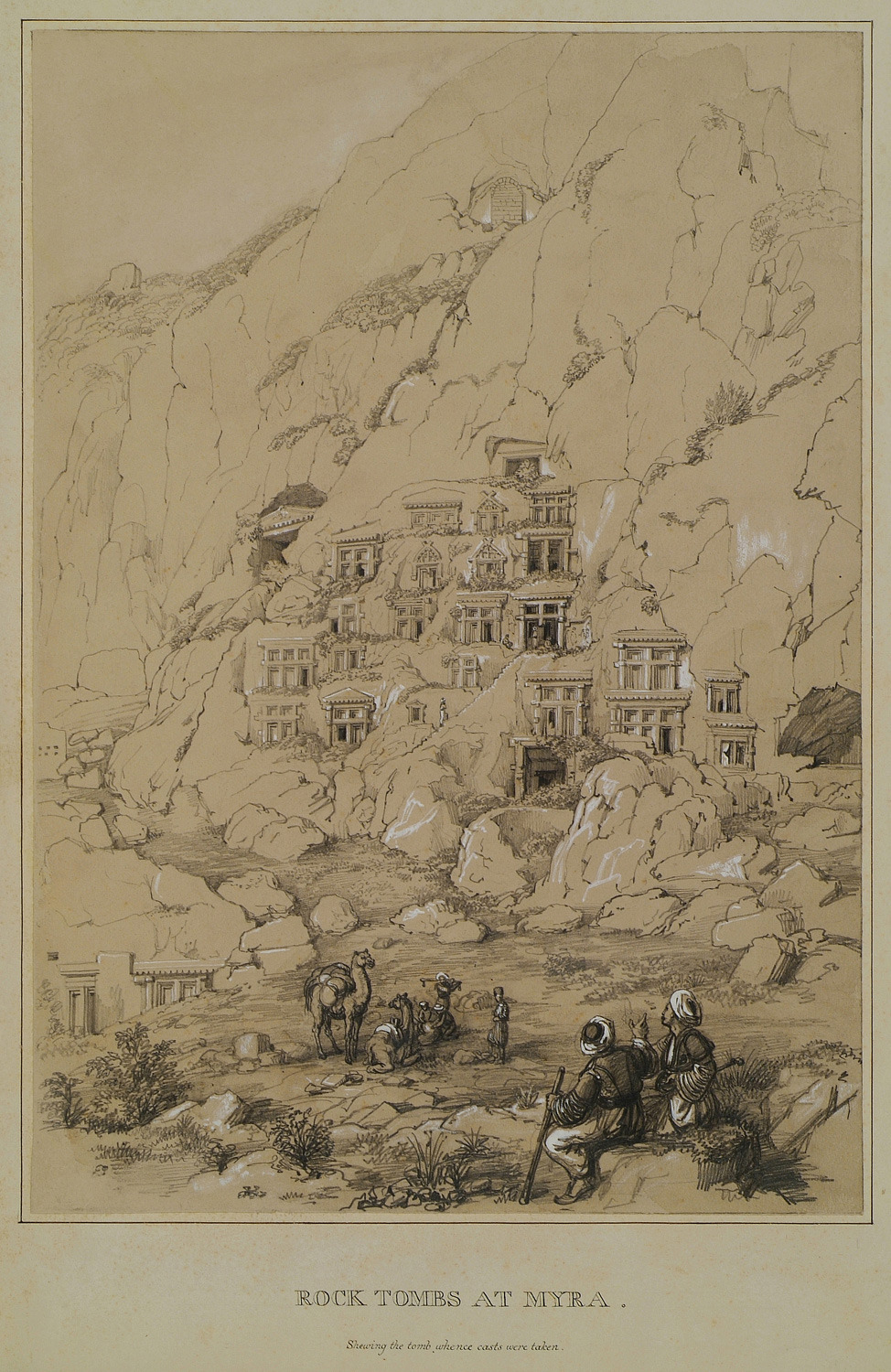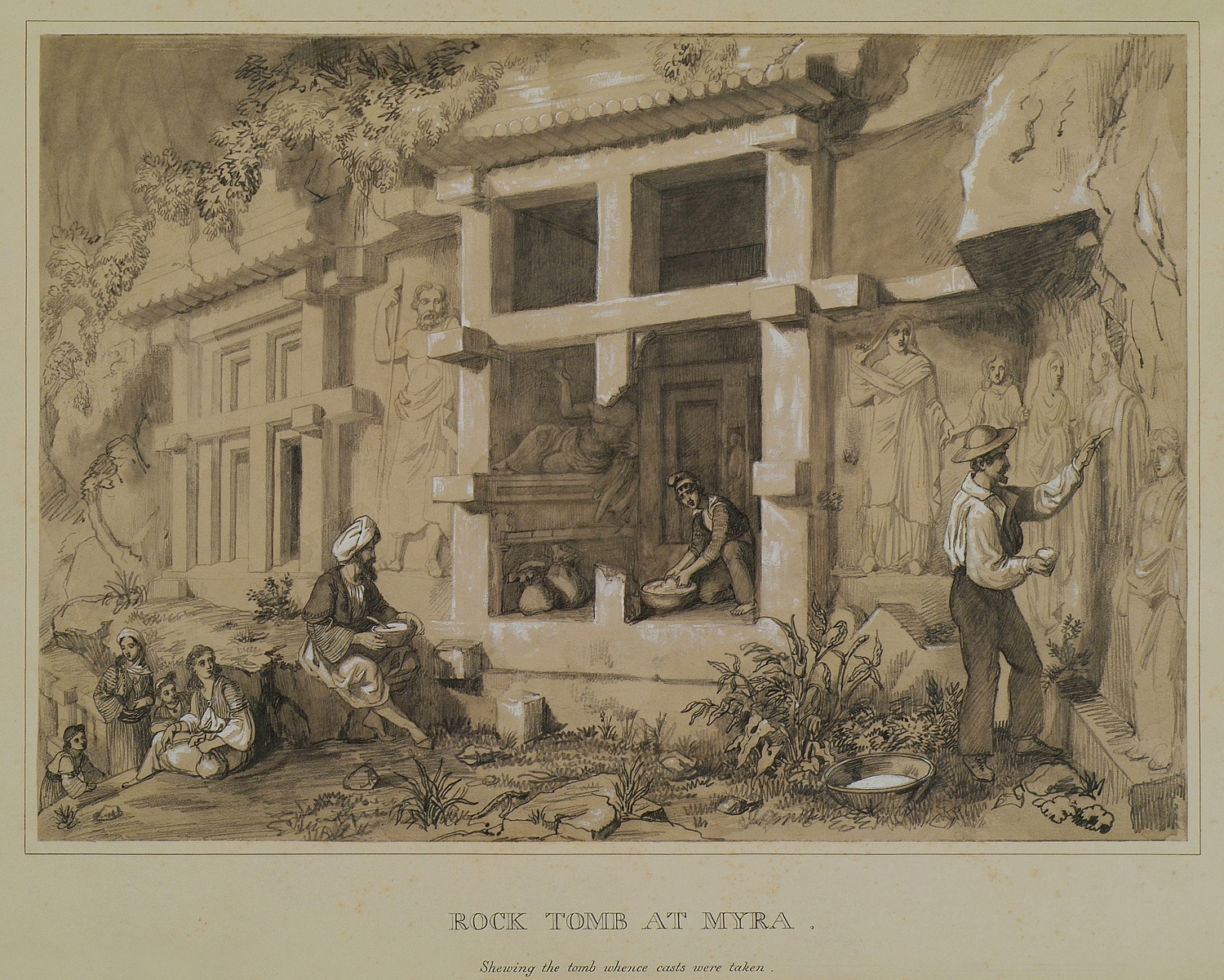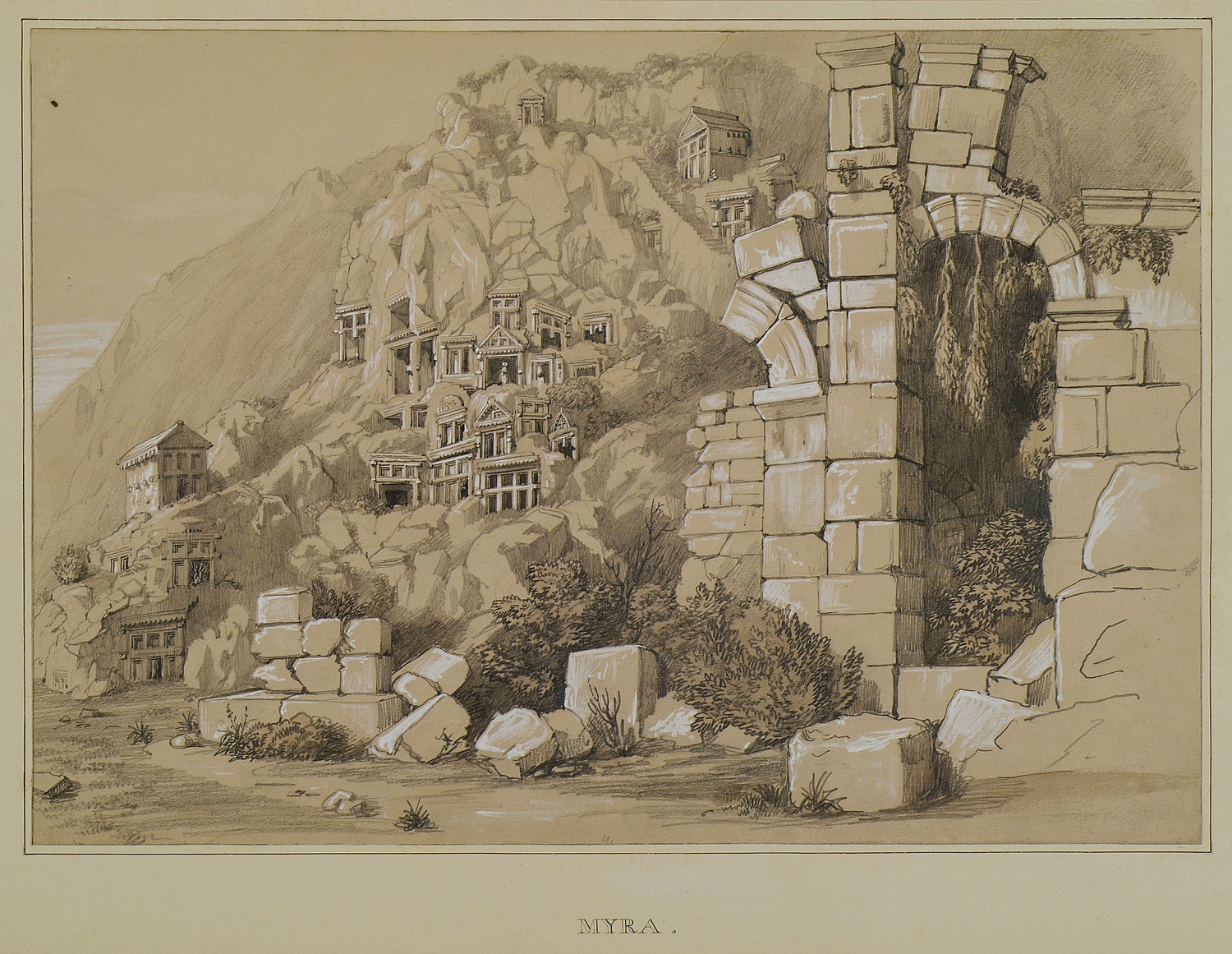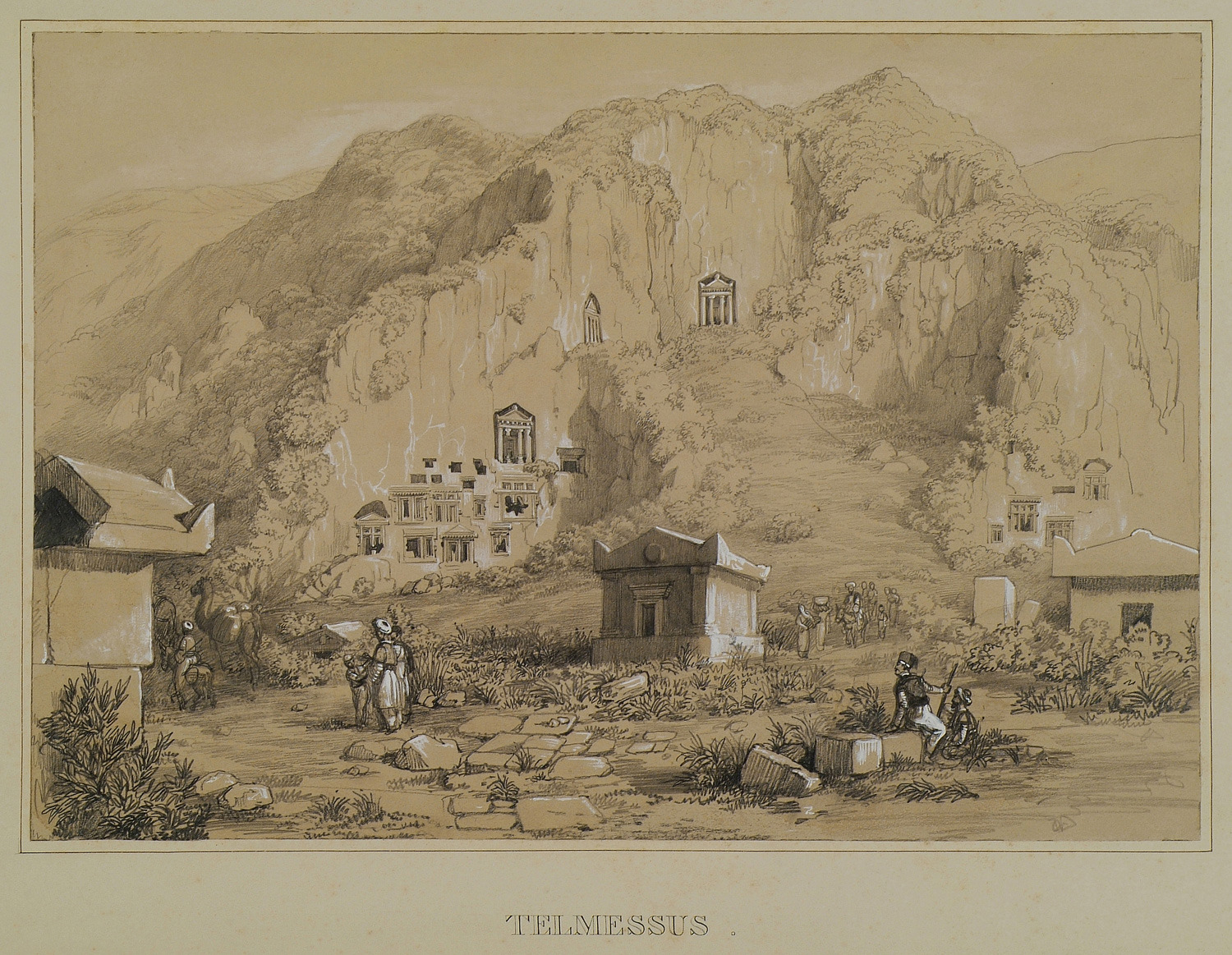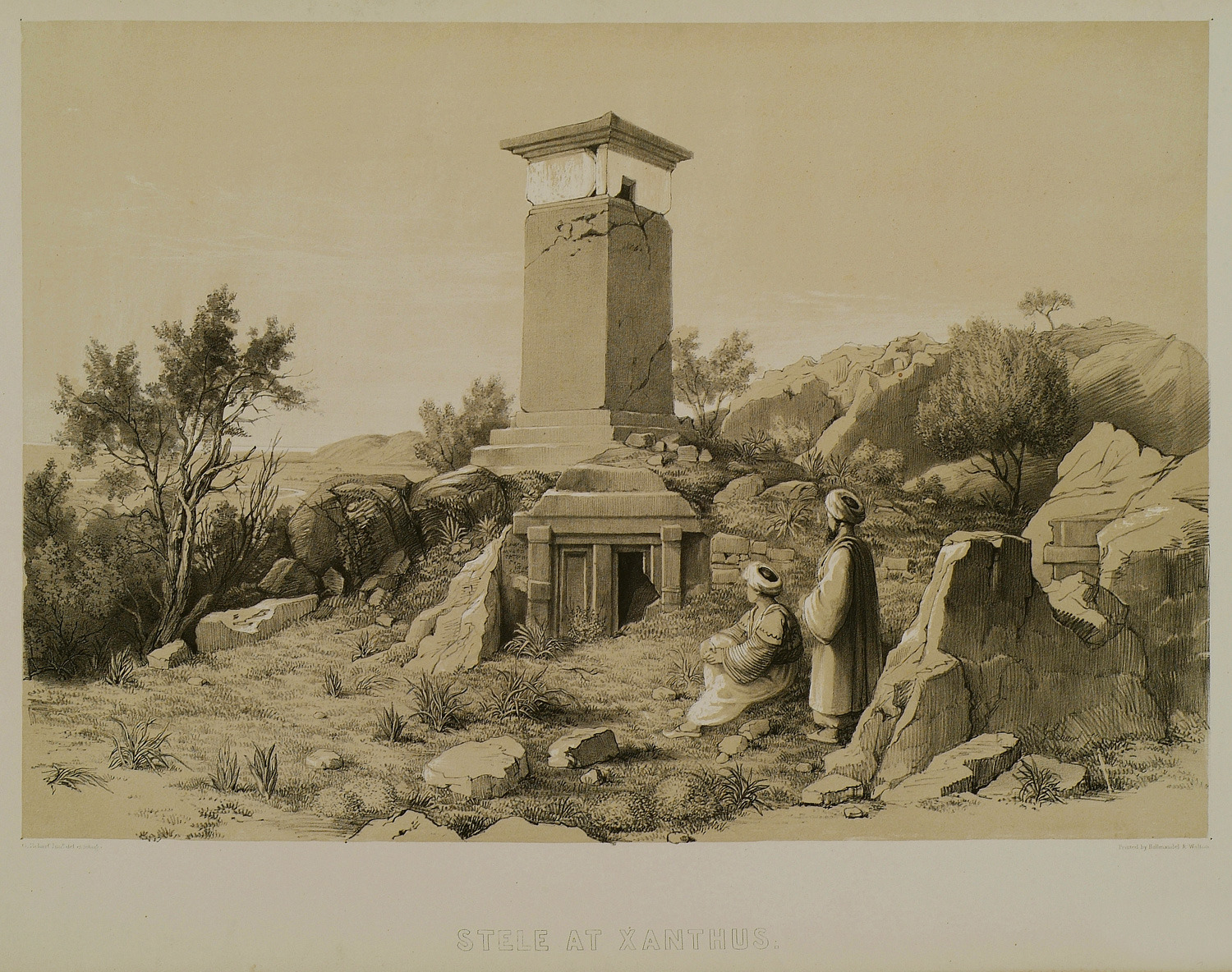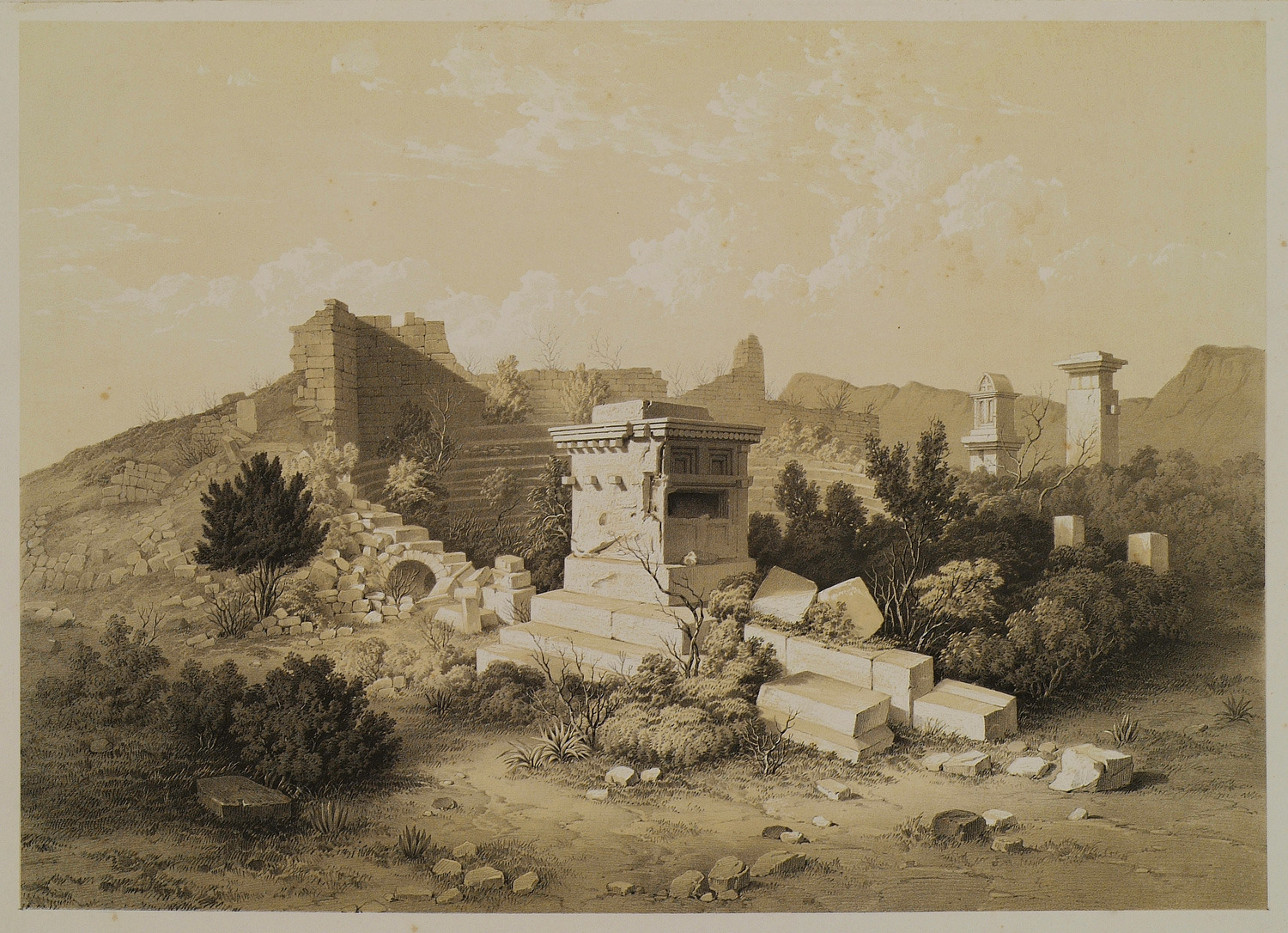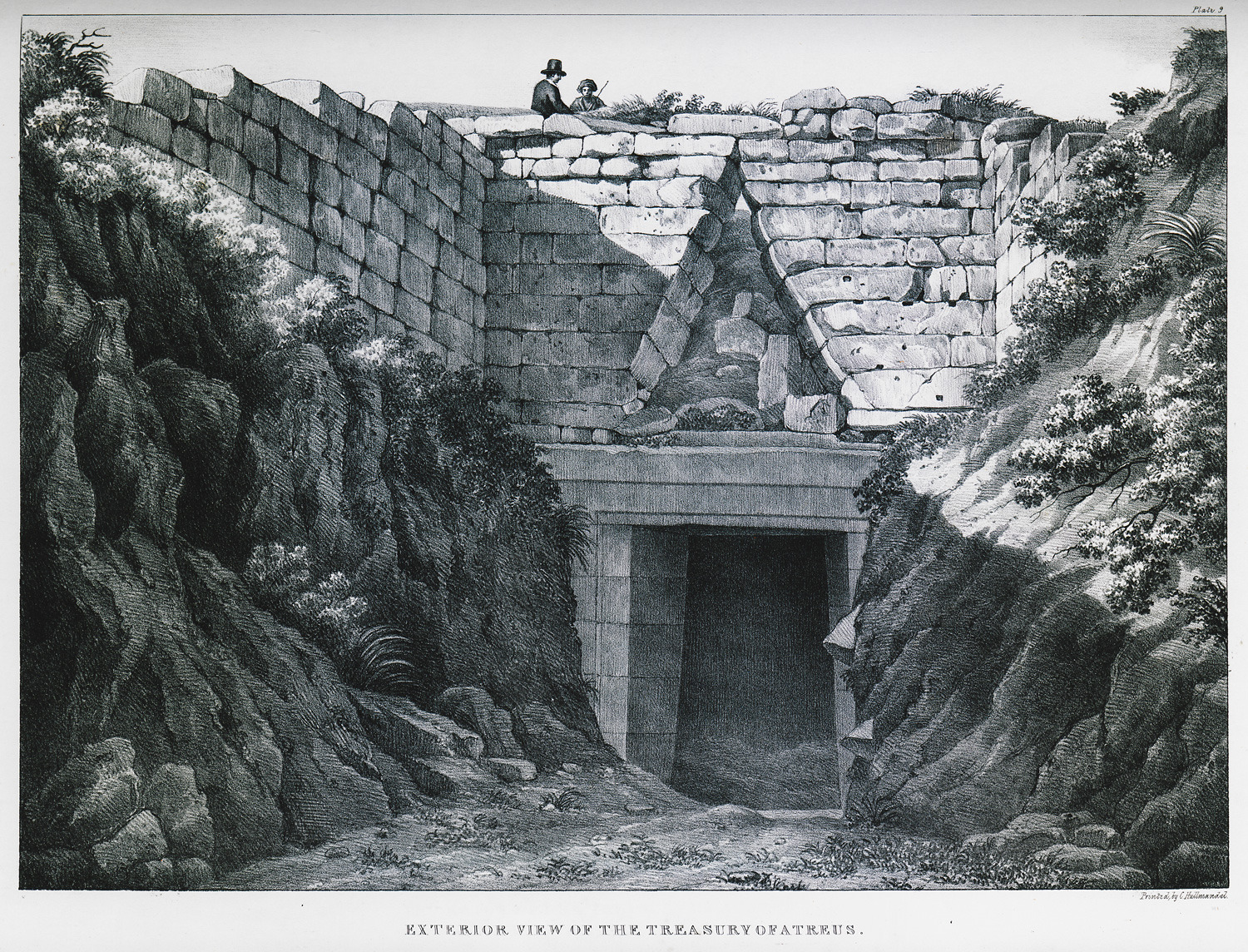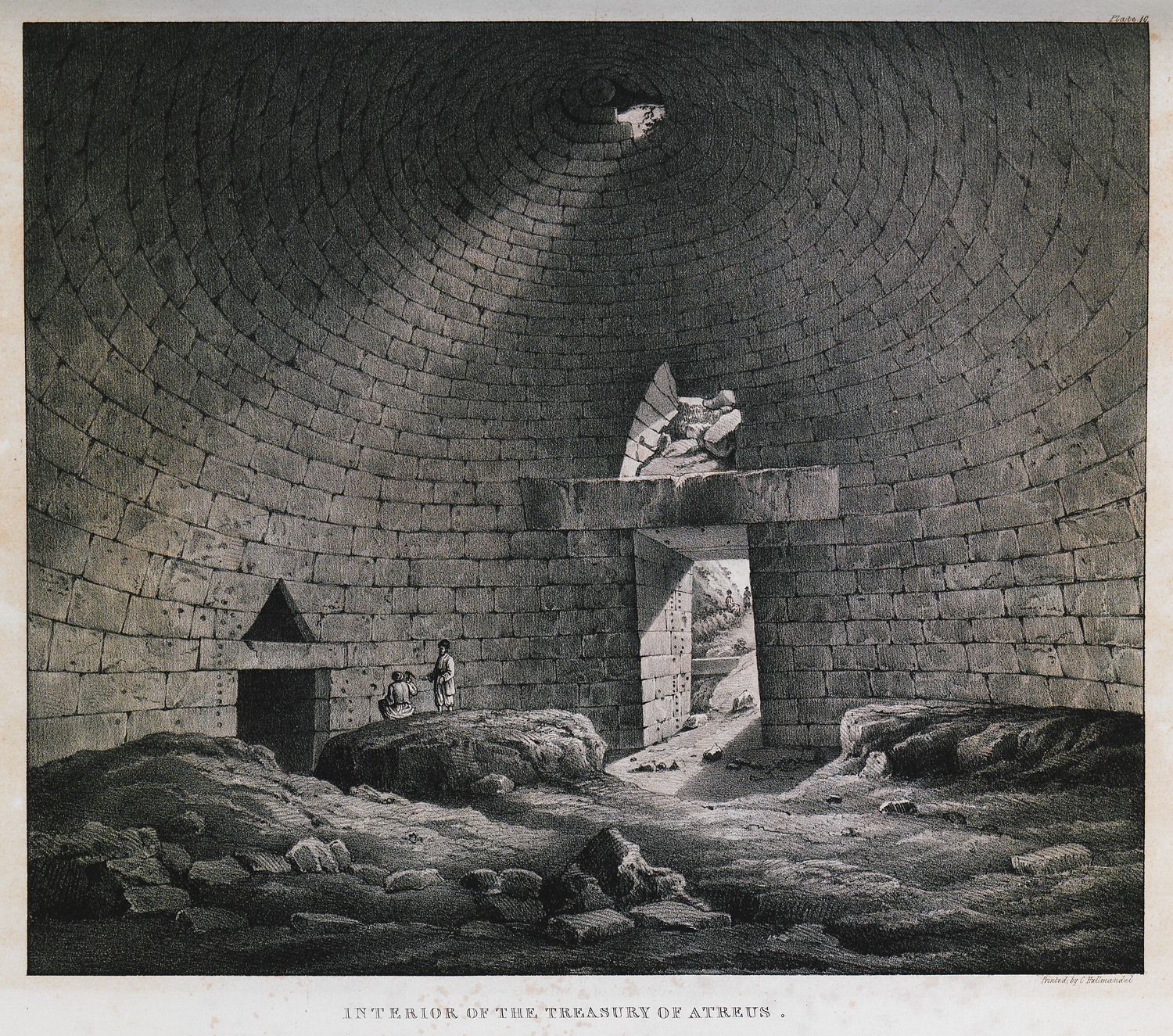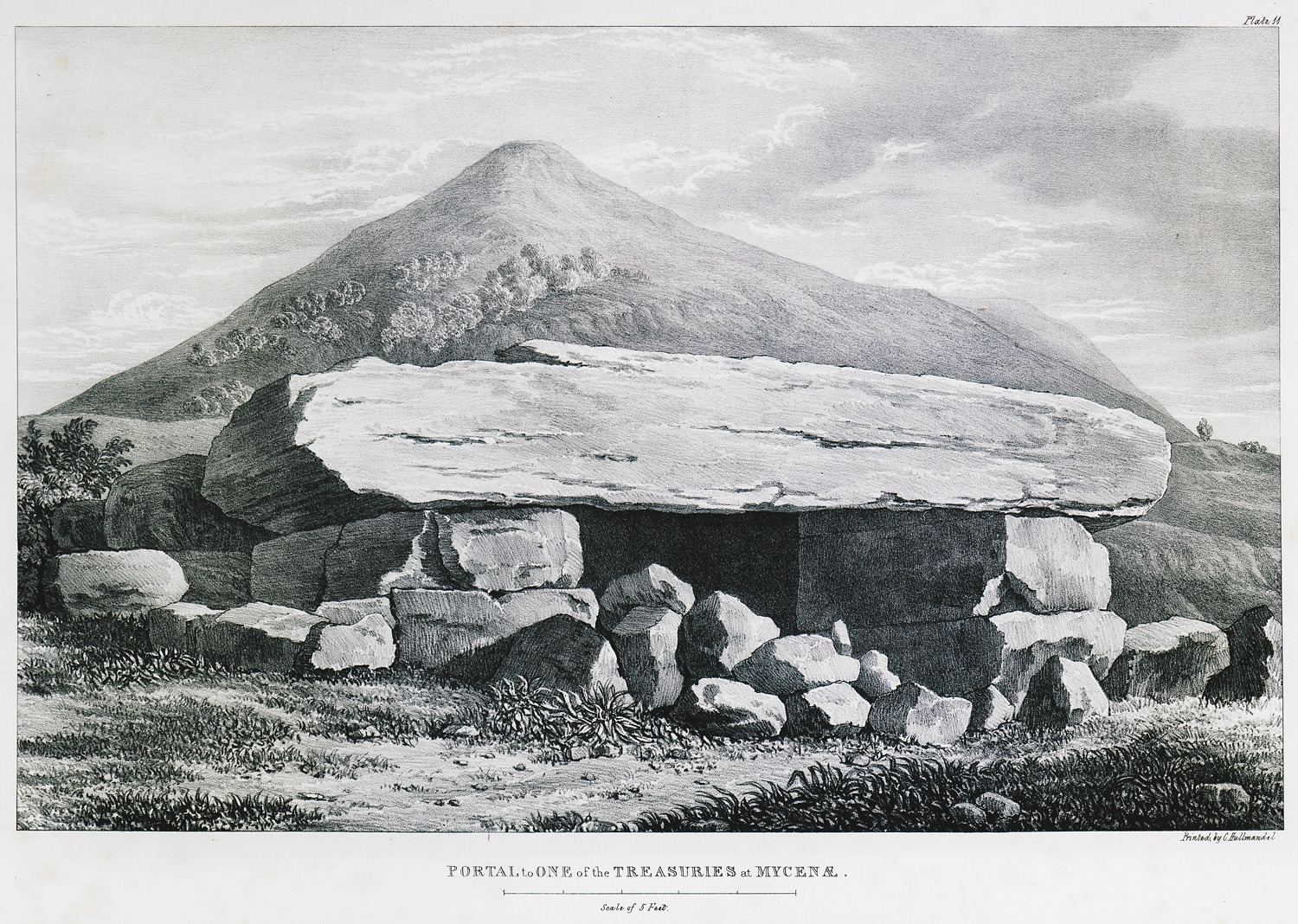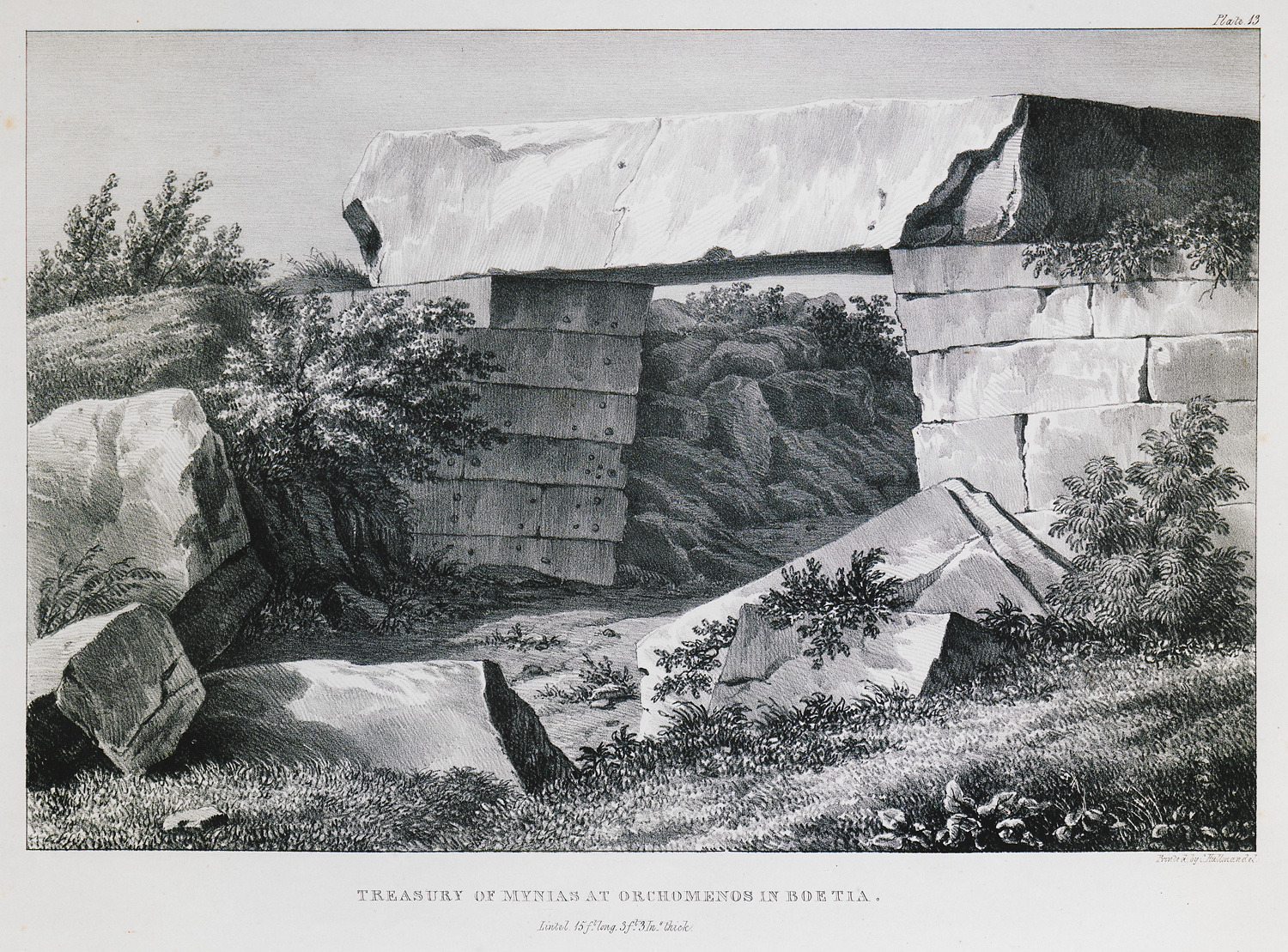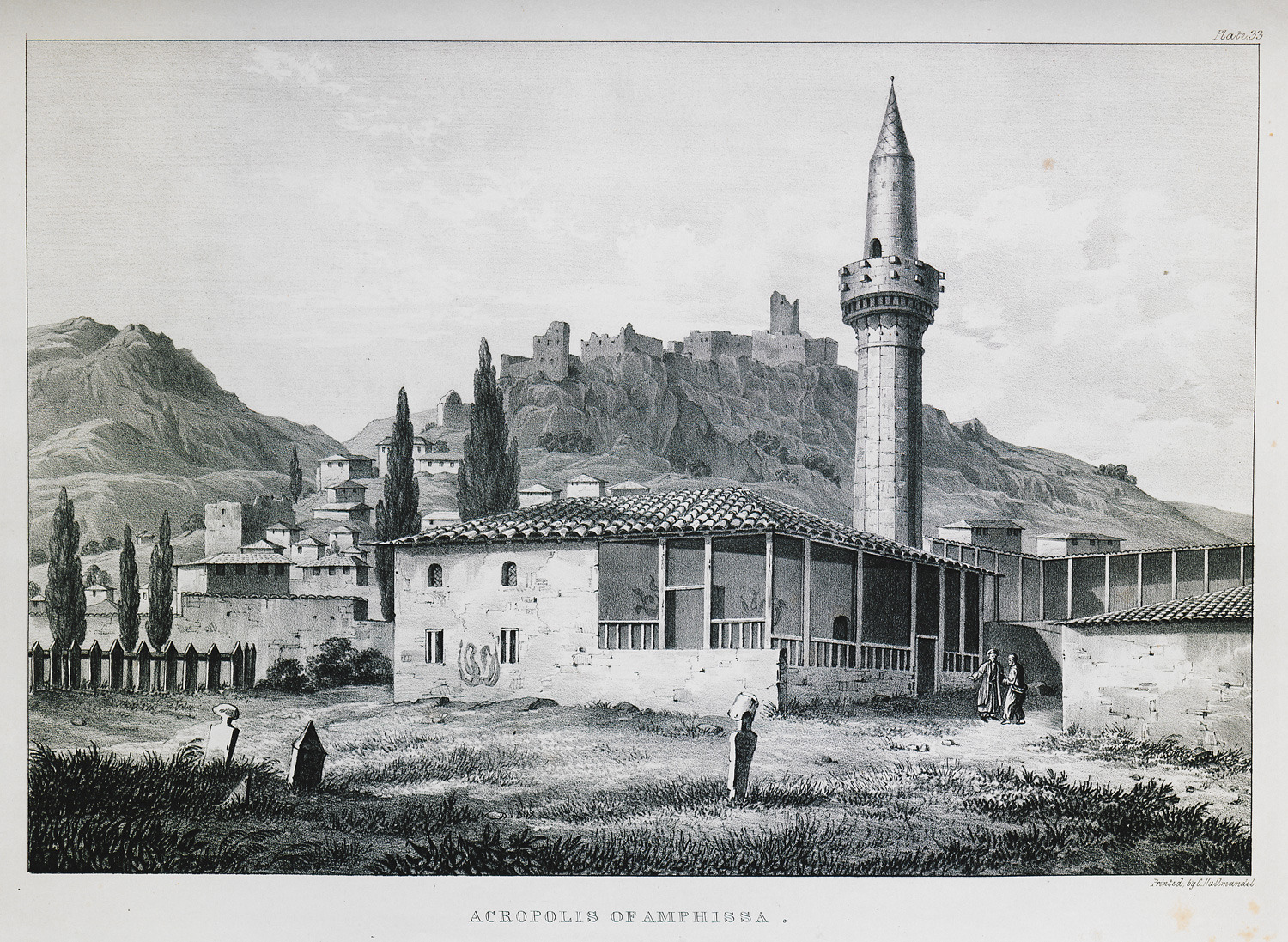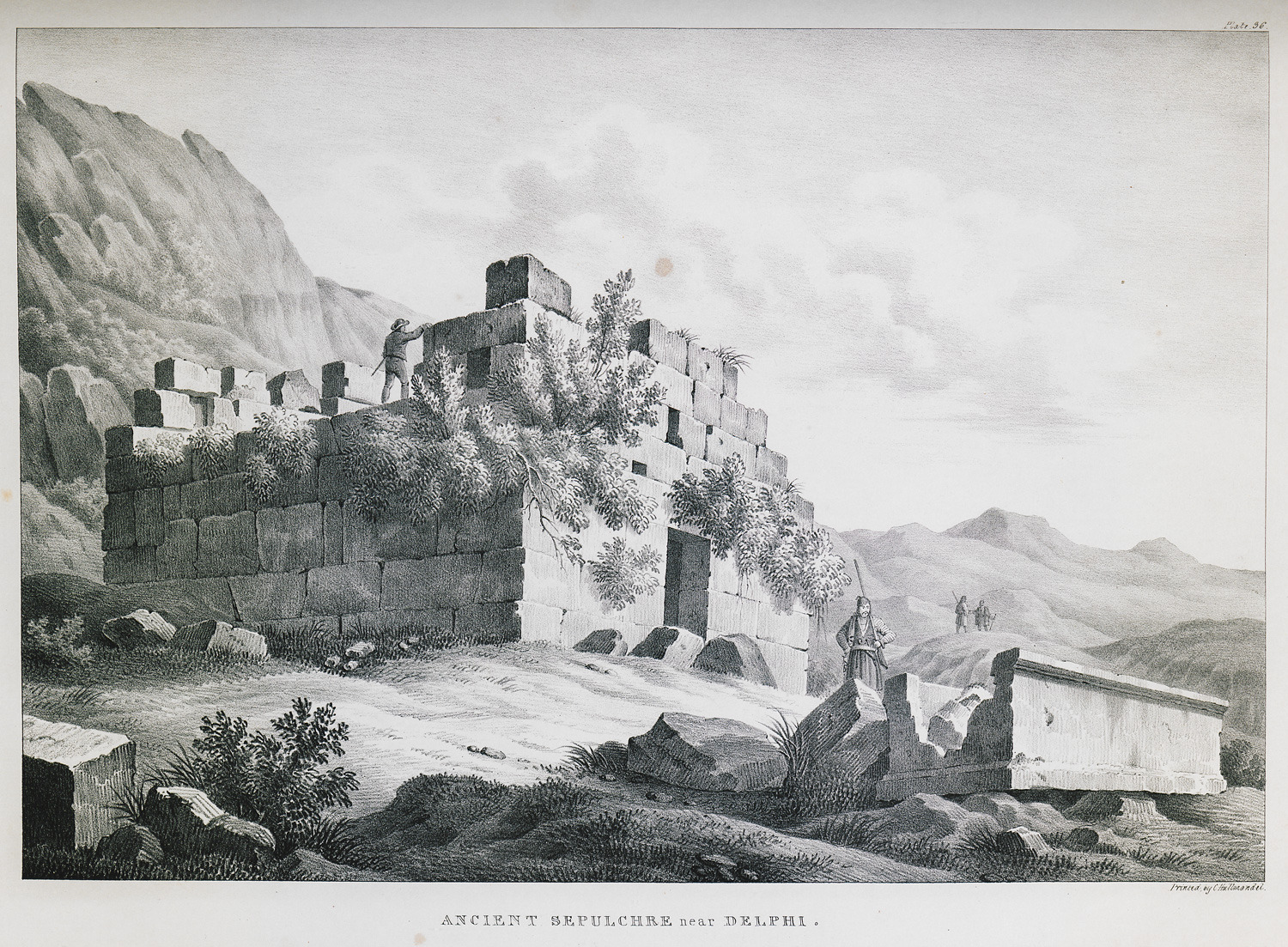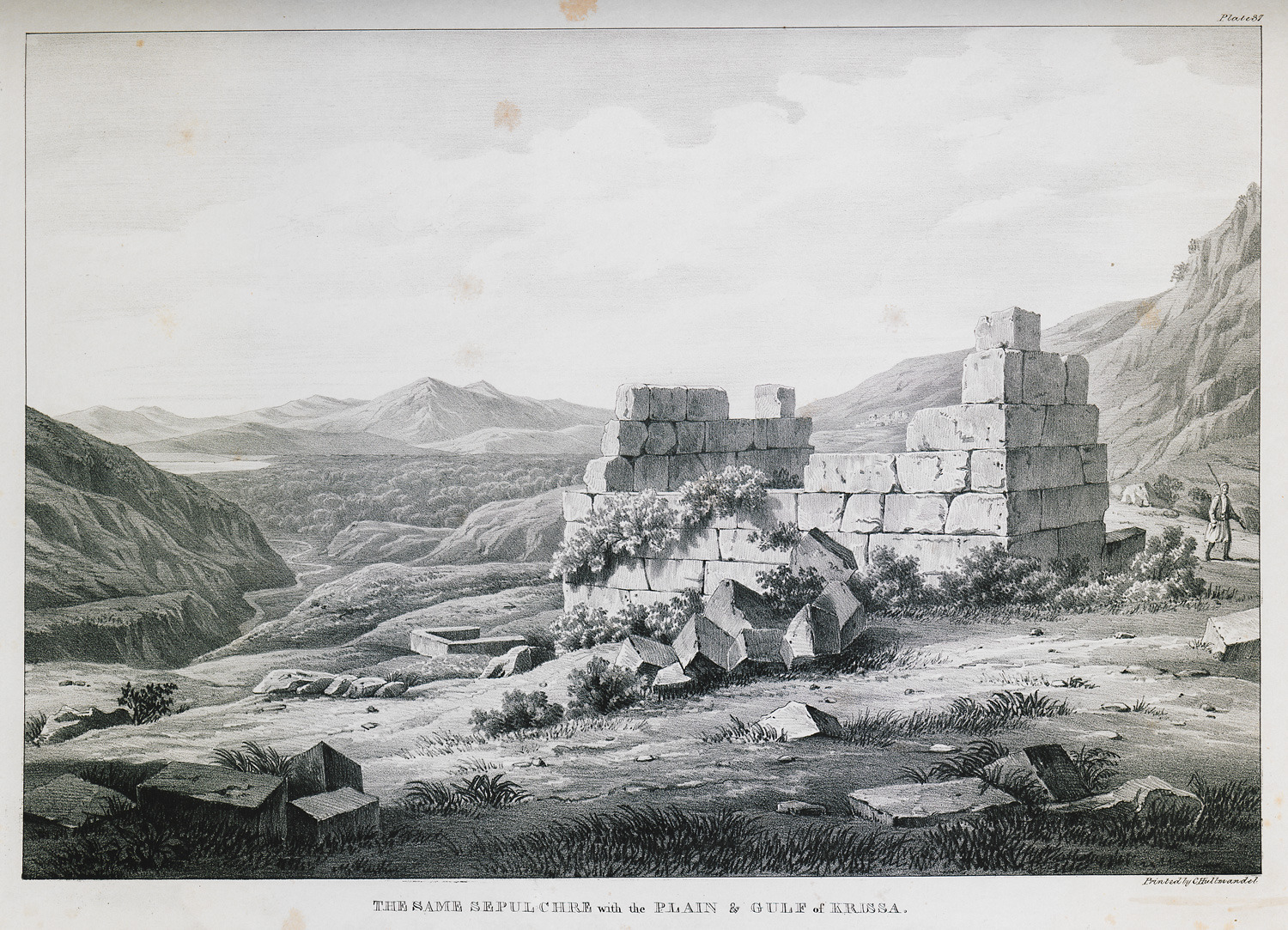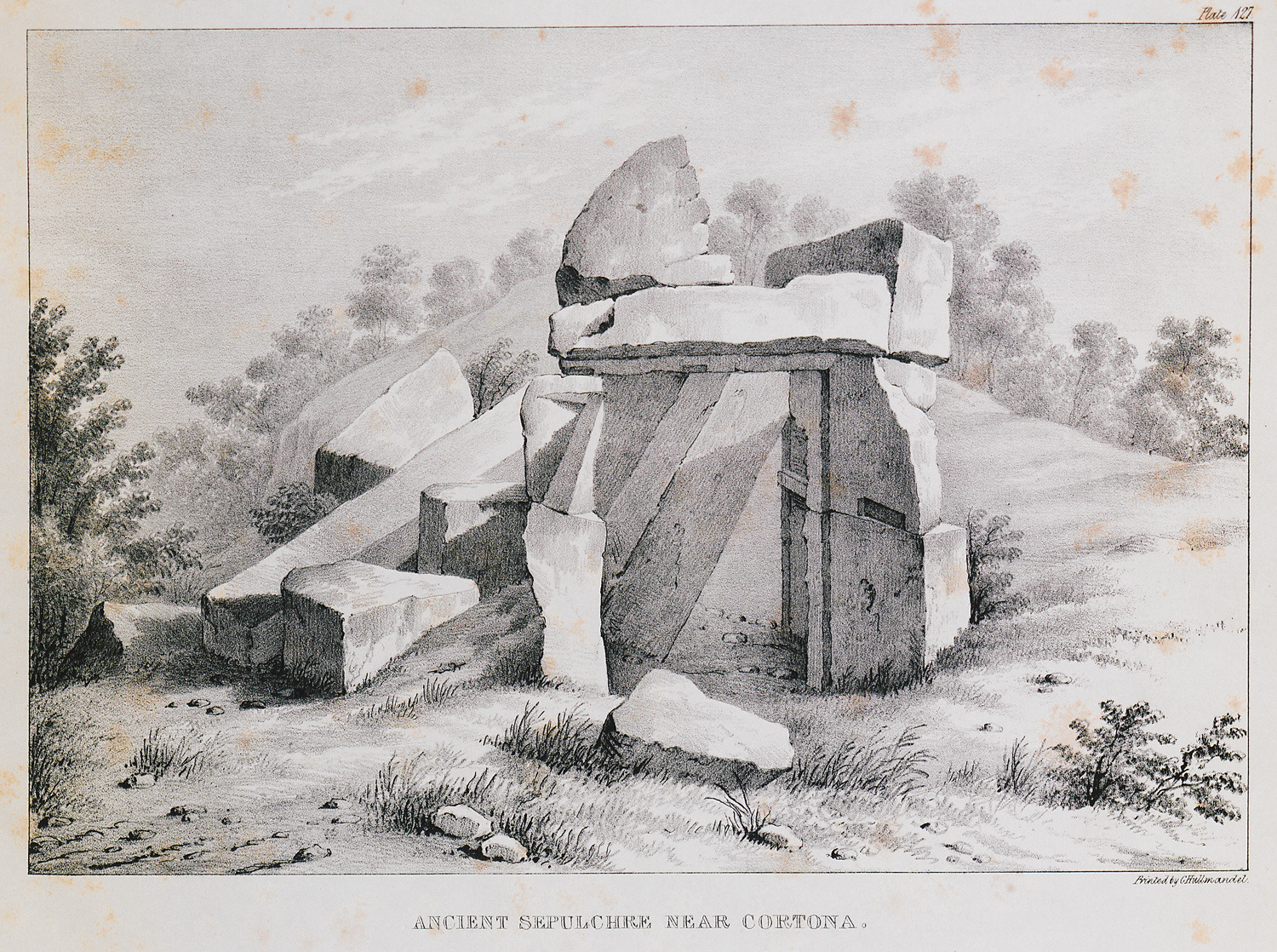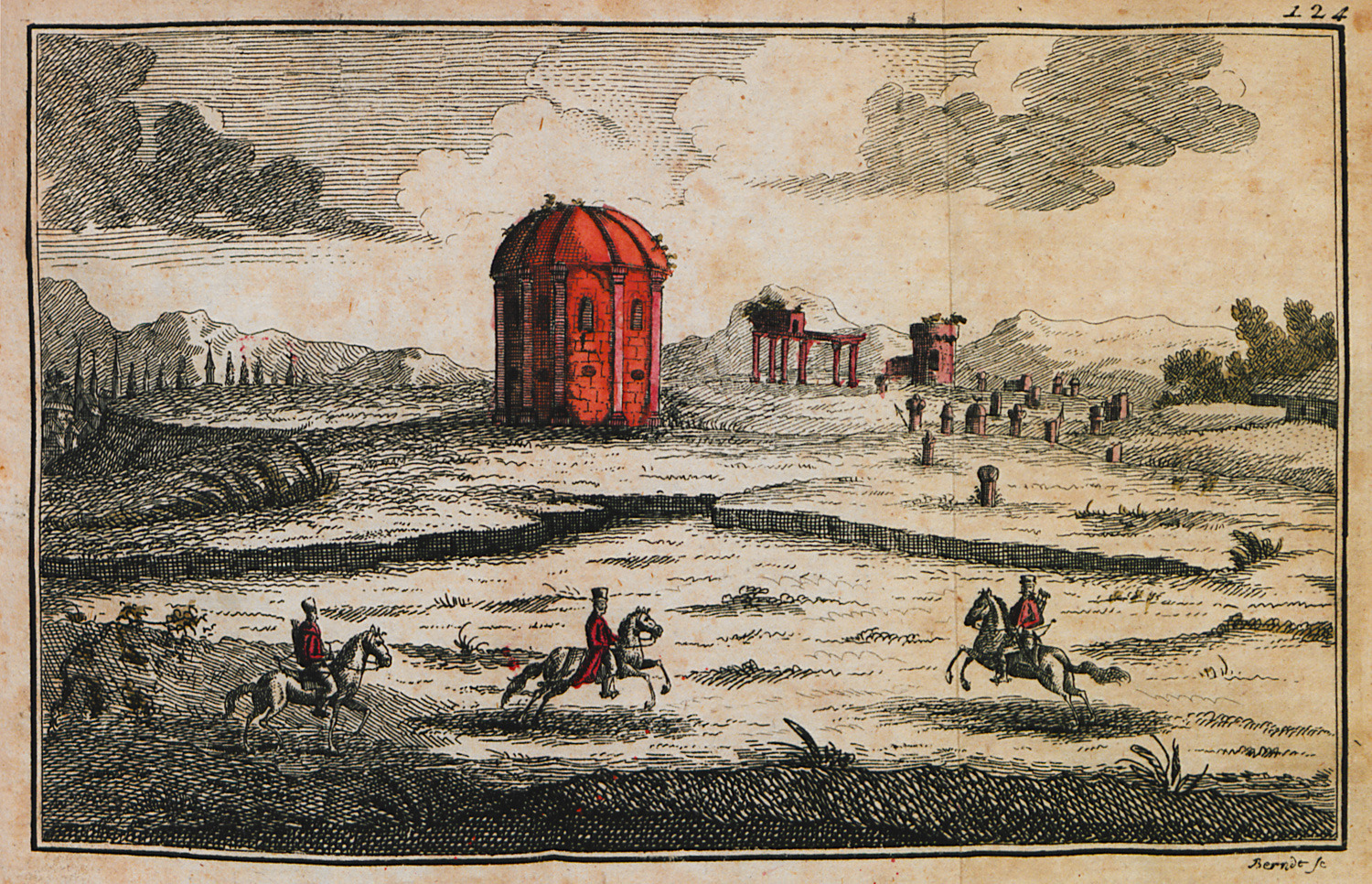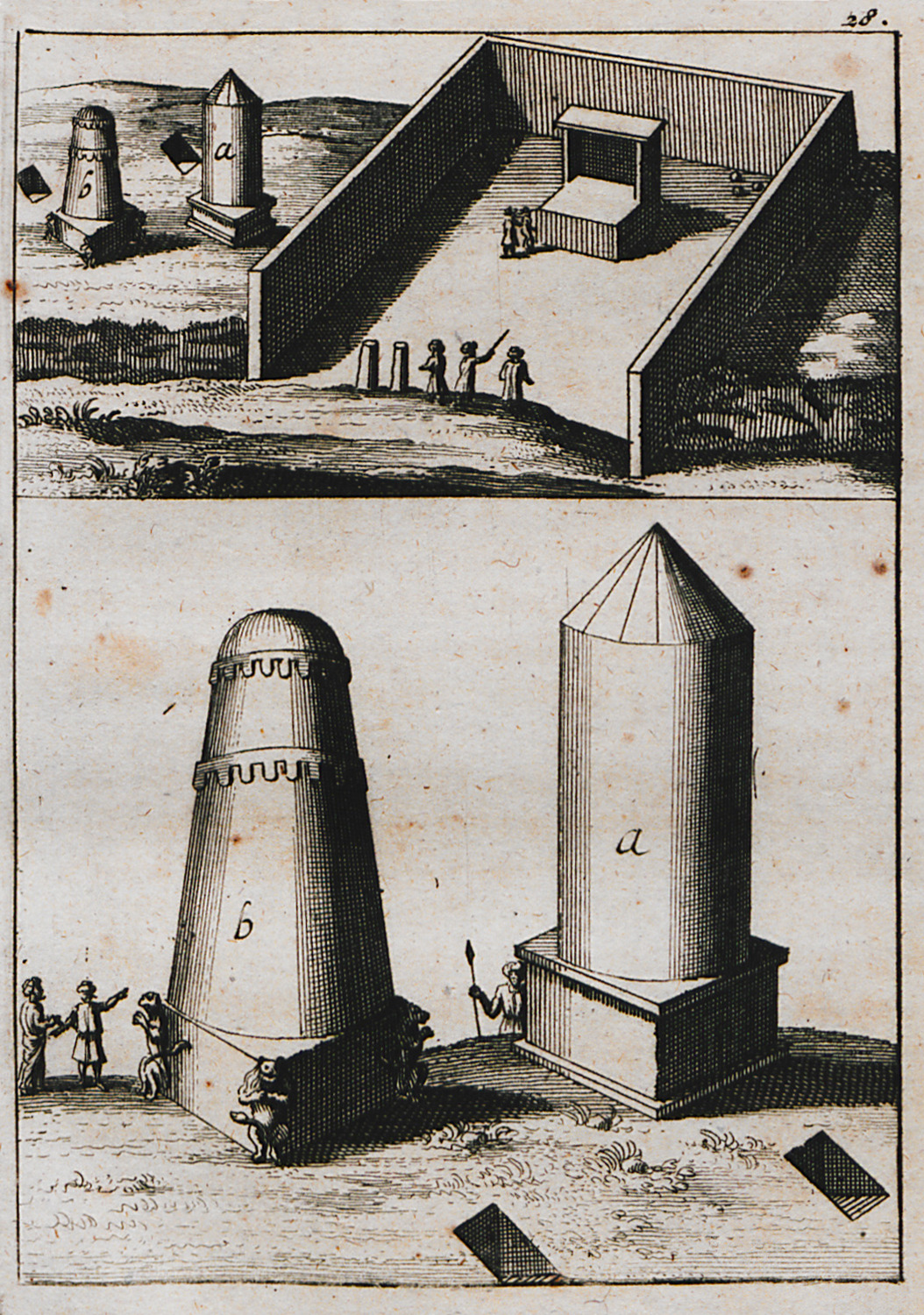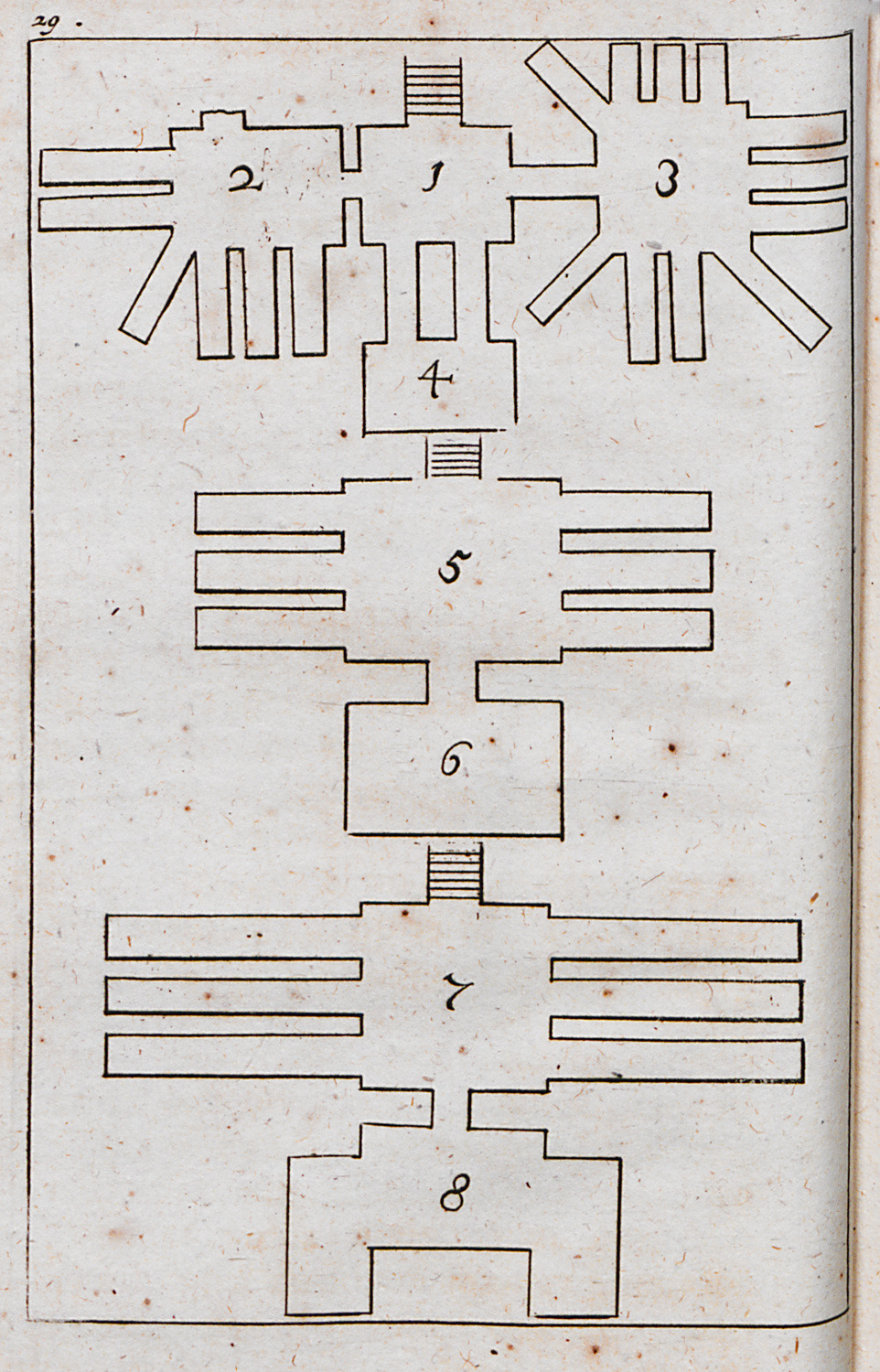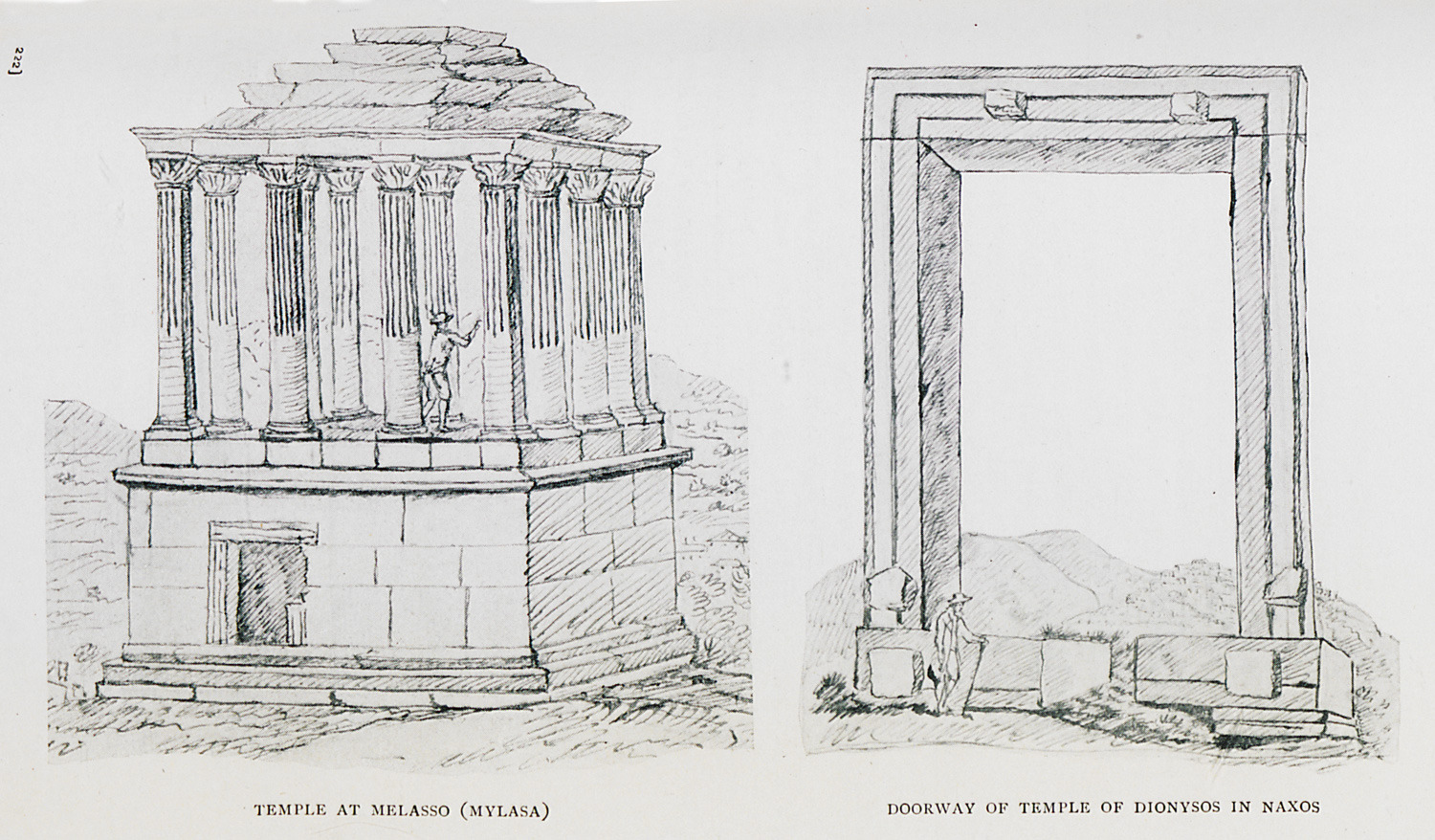Funerary monuments (576 Subjects)
Lycian tombs and the ancient theatre of Xanthus, Asia Minor.
The Harpy Tomb: Lycian tomb, probably of king Xanthus, which was named after its reliefs of female figureswhich resemble Harpies. Several reliefs of the monument were removed by Charles Fellows and are today kept at the British Museum, London.
View of the Harpy Tomb from a Lycian tomb at Xanthus, Asia Minor.
Lycian tomb with relief of chariot drawn by winged horses.
Lycian tomb with relief of lion at Xanthus, Asia Minor. Parts of the monument are today housed at the British Museum, London.
Broken Lycian sarcophagus from Xanthus, Asia Minor.
Rock-cut Lycian tombs at Pinara, Asia Minor.
Rock-cut Lycian tombs at Xanthus, Asia Minor.
Remains of Lycian sarcophagi.
Rock-cut tombs at the acropolis of Tlos, Asia Minor.
Unfinished rock-cut tomb at Tlos, Asia Minor.
Lycian tombs at Antifellos, Asia Minor.
Rock-cut Lycian tombs at Myra, Asia Minor.
Rock-cut Lycian tombs at Myra, Asia Minor.
Rock-cut Lycian tombs at Myra, Asia Minor.
Lycian tombs at Makri (ancient Telmessos), Asia Minor.
View of the Harpy Tomb at Xanthus, Asia Minor.
View of Lycian tombs and the ancient theatre of Xanthus, Asia Minor.
The entrance to the Tholos tomb of Mycenae (Treasury of Atreus).
Interior of the Tholos tomb of Mycenae (Treasury of Atreus).
Entrance to shaft grave, Mycenae.
Funerary monument at Orchomenos, known as tomb of Minyas.
View of the castle of Amfissa, which was built on the site of the city's ancient arcropolis.
Funerary monument at Delphi.
Funerary monument at Delphi. The Crissaean field in the background.
Remains of ancient funerary monument near Cortona, Italy.
Funerary monuments, possibly of the Great Chans of the Tatars, seen by the author at the surroundings of Bahçesaray.
The Phoenician funerary monuments known as al Maghazil or Towers of Amrit, at the entrance of Amrit necropolis, to the south of Tartus in Syria.
Plan of the subterranean funerary complex at the necropolis of Amrit, to the south of Tartus in Syria.
Mausoleum of the Roman era at Mylasa, Asia Minor. The entrance to the temple of Apollo (Portara) at the Chora of Naxos.


